

100 Reported Speech Examples: How To Change Direct Speech Into Indirect Speech
Reported speech, also known as indirect speech, is a way of communicating what someone else has said without quoting their exact words. For example, if your friend said, “ I am going to the store ,” in reported speech, you might convey this as, “ My friend said he was going to the store. ” Reported speech is common in both spoken and written language, especially in storytelling, news reporting, and everyday conversations.
Reported speech can be quite challenging for English language learners because in order to change direct speech into reported speech, one must change the perspective and tense of what was said by the original speaker or writer. In this guide, we will explain in detail how to change direct speech into indirect speech and provide lots of examples of reported speech to help you understand. Here are the key aspects of converting direct speech into reported speech.
Reported Speech: Changing Pronouns
Pronouns are usually changed to match the perspective of the person reporting the speech. For example, “I” in direct speech may become “he” or “she” in reported speech, depending on the context. Here are some example sentences:
- Direct : “I am going to the park.” Reported : He said he was going to the park .
- Direct : “You should try the new restaurant.” Reported : She said that I should try the new restaurant.
- Direct : “We will win the game.” Reported : They said that they would win the game.
- Direct : “She loves her new job.” Reported : He said that she loves her new job.
- Direct : “He can’t come to the party.” Reported : She said that he couldn’t come to the party.
- Direct : “It belongs to me.” Reported : He said that it belonged to him .
- Direct : “They are moving to a new city.” Reported : She said that they were moving to a new city.
- Direct : “You are doing a great job.” Reported : He told me that I was doing a great job.
- Direct : “I don’t like this movie.” Reported : She said that she didn’t like that movie.
- Direct : “We have finished our work.” Reported : They said that they had finished their work.
- Direct : “You will need to sign here.” Reported : He said that I would need to sign there.
- Direct : “She can solve the problem.” Reported : He said that she could solve the problem.
- Direct : “He was not at home yesterday.” Reported : She said that he had not been at home the day before.
- Direct : “It is my responsibility.” Reported : He said that it was his responsibility.
- Direct : “We are planning a surprise.” Reported : They said that they were planning a surprise.
Reported Speech: Reporting Verbs
In reported speech, various reporting verbs are used depending on the nature of the statement or the intention behind the communication. These verbs are essential for conveying the original tone, intent, or action of the speaker. Here are some examples demonstrating the use of different reporting verbs in reported speech:
- Direct: “I will help you,” she promised . Reported: She promised that she would help me.
- Direct: “You should study harder,” he advised . Reported: He advised that I should study harder.
- Direct: “I didn’t take your book,” he denied . Reported: He denied taking my book .
- Direct: “Let’s go to the cinema,” she suggested . Reported: She suggested going to the cinema .
- Direct: “I love this song,” he confessed . Reported: He confessed that he loved that song.
- Direct: “I haven’t seen her today,” she claimed . Reported: She claimed that she hadn’t seen her that day.
- Direct: “I will finish the project,” he assured . Reported: He assured me that he would finish the project.
- Direct: “I’m not feeling well,” she complained . Reported: She complained of not feeling well.
- Direct: “This is how you do it,” he explained . Reported: He explained how to do it.
- Direct: “I saw him yesterday,” she stated . Reported: She stated that she had seen him the day before.
- Direct: “Please open the window,” he requested . Reported: He requested that I open the window.
- Direct: “I can win this race,” he boasted . Reported: He boasted that he could win the race.
- Direct: “I’m moving to London,” she announced . Reported: She announced that she was moving to London.
- Direct: “I didn’t understand the instructions,” he admitted . Reported: He admitted that he didn’t understand the instructions.
- Direct: “I’ll call you tonight,” she promised . Reported: She promised to call me that night.
Reported Speech: Tense Shifts
When converting direct speech into reported speech, the verb tense is often shifted back one step in time. This is known as the “backshift” of tenses. It’s essential to adjust the tense to reflect the time elapsed between the original speech and the reporting. Here are some examples to illustrate how different tenses in direct speech are transformed in reported speech:
- Direct: “I am eating.” Reported: He said he was eating.
- Direct: “They will go to the park.” Reported: She mentioned they would go to the park.
- Direct: “We have finished our homework.” Reported: They told me they had finished their homework.
- Direct: “I do my exercises every morning.” Reported: He explained that he did his exercises every morning.
- Direct: “She is going to start a new job.” Reported: He heard she was going to start a new job.
- Direct: “I can solve this problem.” Reported: She said she could solve that problem.
- Direct: “We are visiting Paris next week.” Reported: They said they were visiting Paris the following week.
- Direct: “I will be waiting outside.” Reported: He stated he would be waiting outside.
- Direct: “They have been studying for hours.” Reported: She mentioned they had been studying for hours.
- Direct: “I can’t understand this chapter.” Reported: He complained that he couldn’t understand that chapter.
- Direct: “We were planning a surprise.” Reported: They told me they had been planning a surprise.
- Direct: “She has to complete her assignment.” Reported: He said she had to complete her assignment.
- Direct: “I will have finished the project by Monday.” Reported: She stated she would have finished the project by Monday.
- Direct: “They are going to hold a meeting.” Reported: She heard they were going to hold a meeting.
- Direct: “I must leave.” Reported: He said he had to leave.
Reported Speech: Changing Time and Place References
When converting direct speech into reported speech, references to time and place often need to be adjusted to fit the context of the reported speech. This is because the time and place relative to the speaker may have changed from the original statement to the time of reporting. Here are some examples to illustrate how time and place references change:
- Direct: “I will see you tomorrow .” Reported: He said he would see me the next day .
- Direct: “We went to the park yesterday .” Reported: They said they went to the park the day before .
- Direct: “I have been working here since Monday .” Reported: She mentioned she had been working there since Monday .
- Direct: “Let’s meet here at noon.” Reported: He suggested meeting there at noon.
- Direct: “I bought this last week .” Reported: She said she had bought it the previous week .
- Direct: “I will finish this by tomorrow .” Reported: He stated he would finish it by the next day .
- Direct: “She will move to New York next month .” Reported: He heard she would move to New York the following month .
- Direct: “They were at the festival this morning .” Reported: She said they were at the festival that morning .
- Direct: “I saw him here yesterday.” Reported: She mentioned she saw him there the day before.
- Direct: “We will return in a week .” Reported: They said they would return in a week .
- Direct: “I have an appointment today .” Reported: He said he had an appointment that day .
- Direct: “The event starts next Friday .” Reported: She mentioned the event starts the following Friday .
- Direct: “I lived in Berlin two years ago .” Reported: He stated he had lived in Berlin two years before .
- Direct: “I will call you tonight .” Reported: She said she would call me that night .
- Direct: “I was at the office yesterday .” Reported: He mentioned he was at the office the day before .
Reported Speech: Question Format
When converting questions from direct speech into reported speech, the format changes significantly. Unlike statements, questions require rephrasing into a statement format and often involve the use of introductory verbs like ‘asked’ or ‘inquired’. Here are some examples to demonstrate how questions in direct speech are converted into statements in reported speech:
- Direct: “Are you coming to the party?” Reported: She asked if I was coming to the party.
- Direct: “What time is the meeting?” Reported: He inquired what time the meeting was.
- Direct: “Why did you leave early?” Reported: They wanted to know why I had left early.
- Direct: “Can you help me with this?” Reported: She asked if I could help her with that.
- Direct: “Where did you buy this?” Reported: He wondered where I had bought that.
- Direct: “Who is going to the concert?” Reported: They asked who was going to the concert.
- Direct: “How do you solve this problem?” Reported: She questioned how to solve that problem.
- Direct: “Is this the right way to the station?” Reported: He inquired whether it was the right way to the station.
- Direct: “Do you know her name?” Reported: They asked if I knew her name.
- Direct: “Why are they moving out?” Reported: She wondered why they were moving out.
- Direct: “Have you seen my keys?” Reported: He asked if I had seen his keys.
- Direct: “What were they talking about?” Reported: She wanted to know what they had been talking about.
- Direct: “When will you return?” Reported: He asked when I would return.
- Direct: “Can she drive a manual car?” Reported: They inquired if she could drive a manual car.
- Direct: “How long have you been waiting?” Reported: She asked how long I had been waiting.
Reported Speech: Omitting Quotation Marks
In reported speech, quotation marks are not used, differentiating it from direct speech which requires them to enclose the spoken words. Reported speech summarizes or paraphrases what someone said without the need for exact wording. Here are examples showing how direct speech with quotation marks is transformed into reported speech without them:
- Direct: “I am feeling tired,” she said. Reported: She said she was feeling tired.
- Direct: “We will win the game,” he exclaimed. Reported: He exclaimed that they would win the game.
- Direct: “I don’t like apples,” the boy declared. Reported: The boy declared that he didn’t like apples.
- Direct: “You should visit Paris,” she suggested. Reported: She suggested that I should visit Paris.
- Direct: “I will be late,” he warned. Reported: He warned that he would be late.
- Direct: “I can’t believe you did that,” she expressed in surprise. Reported: She expressed her surprise that I had done that.
- Direct: “I need help with this task,” he admitted. Reported: He admitted that he needed help with the task.
- Direct: “I have never been to Italy,” she confessed. Reported: She confessed that she had never been to Italy.
- Direct: “We saw a movie last night,” they mentioned. Reported: They mentioned that they saw a movie the night before.
- Direct: “I am learning to play the piano,” he revealed. Reported: He revealed that he was learning to play the piano.
- Direct: “You must finish your homework,” she instructed. Reported: She instructed that I must finish my homework.
- Direct: “I will call you tomorrow,” he promised. Reported: He promised that he would call me the next day.
- Direct: “I have finished my assignment,” she announced. Reported: She announced that she had finished her assignment.
- Direct: “I cannot attend the meeting,” he apologized. Reported: He apologized for not being able to attend the meeting.
- Direct: “I don’t remember where I put it,” she confessed. Reported: She confessed that she didn’t remember where she put it.
Reported Speech Quiz
Thanks for reading! I hope you found these reported speech examples useful. Before you go, why not try this Reported Speech Quiz and see if you can change indirect speech into reported speech?

Reported Speech: Rules, Examples, Exceptions

👉 Quiz 1 / Quiz 2
Advanced Grammar Course
What is reported speech?
“Reported speech” is when we talk about what somebody else said – for example:
- Direct Speech: “I’ve been to London three times.”
- Reported Speech: She said she’d been to London three times.
There are a lot of tricky little details to remember, but don’t worry, I’ll explain them and we’ll see lots of examples. The lesson will have three parts – we’ll start by looking at statements in reported speech, and then we’ll learn about some exceptions to the rules, and finally we’ll cover reported questions, requests, and commands.

So much of English grammar – like this topic, reported speech – can be confusing, hard to understand, and even harder to use correctly. I can help you learn grammar easily and use it confidently inside my Advanced English Grammar Course.
In this course, I will make even the most difficult parts of English grammar clear to you – and there are lots of opportunities for you to practice!

Backshift of Verb Tenses in Reported Speech
When we use reported speech, we often change the verb tense backwards in time. This can be called “backshift.”
Here are some examples in different verb tenses:
Reported Speech (Part 1) Quiz
Exceptions to backshift in reported speech.
Now that you know some of the reported speech rules about backshift, let’s learn some exceptions.
There are two situations in which we do NOT need to change the verb tense.
No backshift needed when the situation is still true
For example, if someone says “I have three children” (direct speech) then we would say “He said he has three children” because the situation continues to be true.
If I tell you “I live in the United States” (direct speech) then you could tell someone else “She said she lives in the United States” (that’s reported speech) because it is still true.
When the situation is still true, then we don’t need to backshift the verb.

He said he HAS three children
But when the situation is NOT still true, then we DO need to backshift the verb.
Imagine your friend says, “I have a headache.”
- If you immediately go and talk to another friend, you could say, “She said she has a headache,” because the situation is still true
- If you’re talking about that conversation a month after it happened, then you would say, “She said she had a headache,” because it’s no longer true.
No backshift needed when the situation is still in the future
We also don’t need to backshift to the verb when somebody said something about the future, and the event is still in the future.
Here’s an example:
- On Monday, my friend said, “I ‘ll call you on Friday .”
- “She said she ‘ll call me on Friday”, because Friday is still in the future from now.
- It is also possible to say, “She said she ‘d (she would) call me on Friday.”
- Both of them are correct, so the backshift in this case is optional.
Let’s look at a different situation:
- On Monday, my friend said, “I ‘ll call you on Tuesday .”
- “She said she ‘d call me on Tuesday.” I must backshift because the event is NOT still in the future.

Review: Reported Speech, Backshift, & Exceptions
Quick review:
- Normally in reported speech we backshift the verb, we put it in a verb tense that’s a little bit further in the past.
- when the situation is still true
- when the situation is still in the future
Reported Requests, Orders, and Questions
Those were the rules for reported statements, just regular sentences.
What about reported speech for questions, requests, and orders?
For reported requests, we use “asked (someone) to do something”:
- “Please make a copy of this report.” (direct speech)
- She asked me to make a copy of the report. (reported speech)
For reported orders, we use “told (someone) to do something:”
- “Go to the bank.” (direct speech)
- “He told me to go to the bank.” (reported speech)
The main verb stays in the infinitive with “to”:
- She asked me to make a copy of the report. She asked me make a copy of the report.
- He told me to go to the bank. He told me go to the bank.
For yes/no questions, we use “asked if” and “wanted to know if” in reported speech.
- “Are you coming to the party?” (direct)
- He asked if I was coming to the party. (reported)
- “Did you turn off the TV?” (direct)
- She wanted to know if I had turned off the TV.” (reported)
The main verb changes and back shifts according to the rules and exceptions we learned earlier.
Notice that we don’t use do/does/did in the reported question:
- She wanted to know did I turn off the TV.
- She wanted to know if I had turned off the TV.
For other questions that are not yes/no questions, we use asked/wanted to know (without “if”):
- “When was the company founded?” (direct)
- She asked when the company was founded.” (reported)
- “What kind of car do you drive?” (direct)
- He wanted to know what kind of car I drive. (reported)
Again, notice that we don’t use do/does/did in reported questions:
- “Where does he work?”
- She wanted to know where does he work.
- She wanted to know where he works.
Also, in questions with the verb “to be,” the word order changes in the reported question:
- “Where were you born?” ([to be] + subject)
- He asked where I was born. (subject + [to be])
- He asked where was I born.

Reported Speech (Part 2) Quiz
Learn more about reported speech:
- Reported speech: Perfect English Grammar
- Reported speech: BJYU’s
If you want to take your English grammar to the next level, then my Advanced English Grammar Course is for you! It will help you master the details of the English language, with clear explanations of essential grammar topics, and lots of practice. I hope to see you inside!
I’ve got one last little exercise for you, and that is to write sentences using reported speech. Think about a conversation you’ve had in the past, and write about it – let’s see you put this into practice right away.
Master the details of English grammar:

More Espresso English Lessons:
About the author.
Shayna Oliveira
Shayna Oliveira is the founder of Espresso English, where you can improve your English fast - even if you don’t have much time to study. Millions of students are learning English from her clear, friendly, and practical lessons! Shayna is a CELTA-certified teacher with 10+ years of experience helping English learners become more fluent in her English courses.
- For Teachers
- Schools & Districts
- Contact Sales
Teaching direct speech with Memes in Book Creator

This is a fun and creative way to get students excited about learning English.
I was inspired recently by how Literacy Co-ordinator Mathew Sullivan had been teaching speech with his students:
So I decided to do something similar using blank internet memes. A “meme” is a virally-transmitted cultural symbol or social idea. Usually they are an image with text above or below like these examples:

These were made using the app Mematic , which is featured in my new book ’50+ iPad lessons for Exciting Sentences’ . The book details how the app is used to help children generate and share exciting sentences.
Using the idea of a meme, I used it as a way to help children practise direct speech. In the past I have used iPhone text messaging to teach direct speech which has worked brilliantly.
After searching the internet, I found some blank memes like this:

We started by discussing how to punctuate direct speech, and we used colour coding to highlight three different parts:
- What has been said directly in the “”
- The reporting clause
- Extra detail/description
I demonstrated examples of how the reporting clause and extra description can be at the start, in the middle or at the end of the sentence.
I then set the challenge of creating some dialogue for the blank memes. Straight away the children were hooked, they recognised the images from their favourite films/cartoons. The children could be as imaginative with the dialogue they created but then have the visual images to help develop the reporting clause and extra detail.
I initially asked the children to type out the dialogue onto the image using the app Book Creator, just to help colour code each part so they could demonstrate their understanding of the different elements. They then wrote the dialogue into their books.
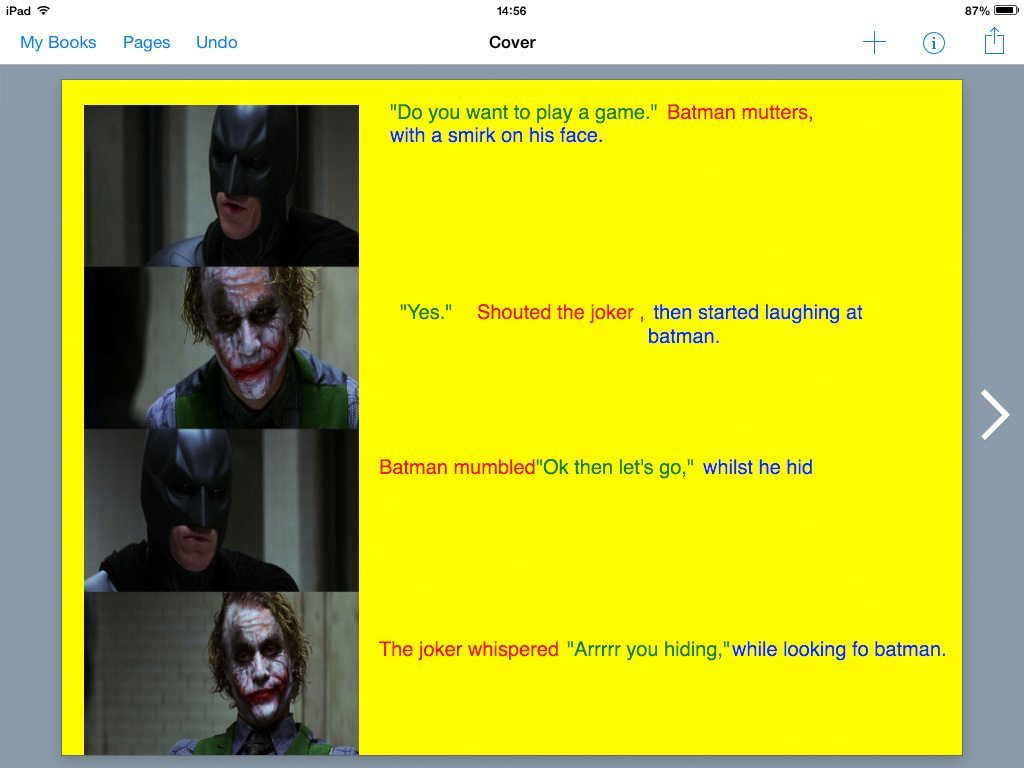
This idea can easily be used to develop children’s understanding of reported speech and even changing direct to reported speech.

Lee Parkinson has been a Primary School teacher for eight years at Davyhulme Primary in Trafford, Manchester. He provides INSET and CPD internationally, looking at ways to raise standards across the curriculum.
Related posts
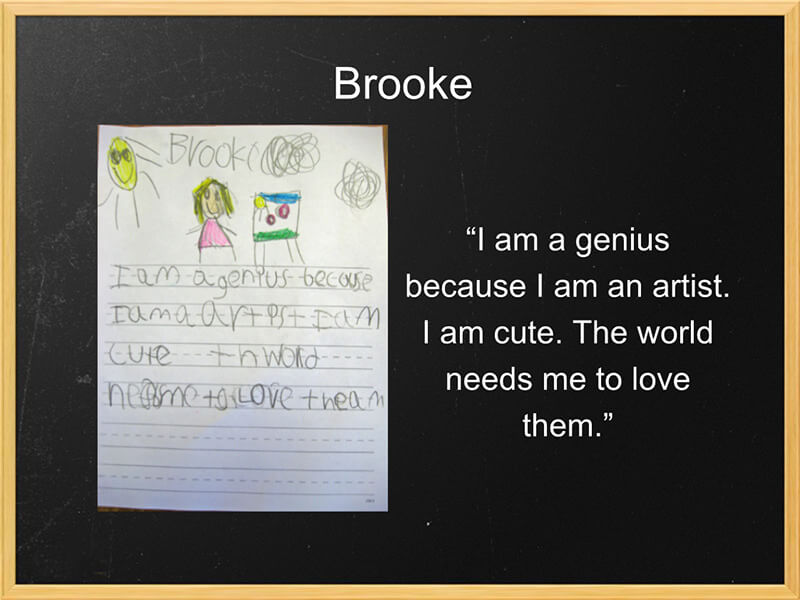
Leave a Reply Cancel reply
Your email address will not be published. Required fields are marked *
Looking for something? Type below…
- Create a FREE account
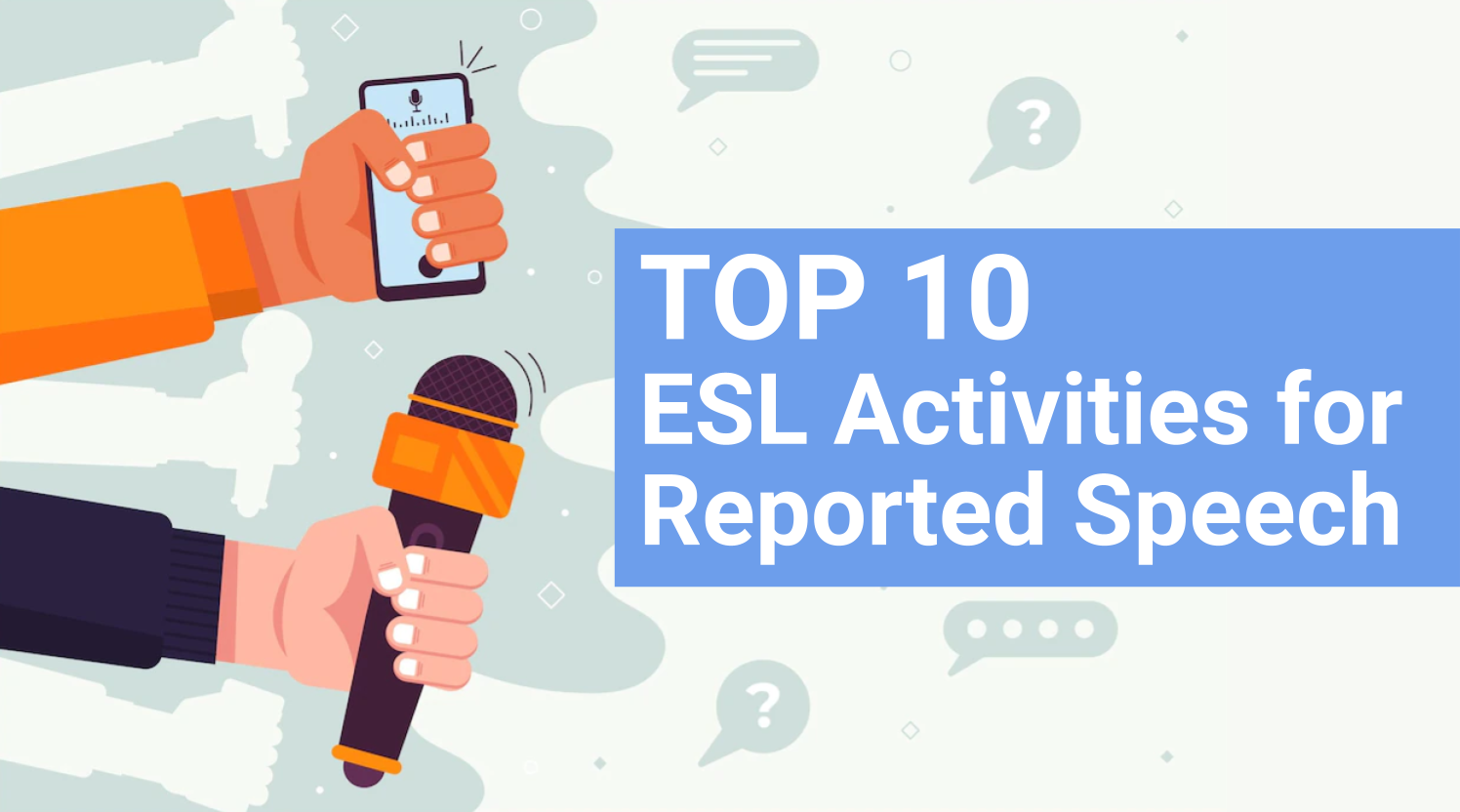
- All topics A-Z
- Grammar
- Vocabulary
- Speaking
- Reading
- Listening
- Writing
- Pronunciation
- Virtual Classroom
- Worksheets by season
- 600 Creative Writing Prompts
- Warmers, fillers & ice-breakers
- Coloring pages to print
- Flashcards
- Classroom management worksheets
- Emergency worksheets
- Revision worksheets
- Resources we recommend
- Copyright 2007-2021 пїЅ
- Submit a worksheet
- Mobile version
You are using an outdated browser. Please upgrade your browser or activate Google Chrome Frame to improve your experience.
Reported Speech in English
“Reported speech” might sound fancy, but it isn’t that complicated.
It’s just how you talk about what someone said.
Luckily, it’s pretty simple to learn the basics in English, beginning with the two types of reported speech: direct (reporting the exact words someone said) and indirect (reporting what someone said without using their exact words ).
Read this post to learn how to report speech, with tips and tricks for each, plenty of examples and a resources section that tells you about real world resources you can use to practice reporting speech.
How to Report Direct Speech
How to report indirect speech, reporting questions in indirect speech, verb tenses in indirect reported speech, simple present, present continuous, present perfect, present perfect continuous, simple past, past continuous, past perfect, past perfect continuous, simple future, future continuous, future perfect, future perfect continuous, authentic resources for practicing reported speech, novels and short stories, native english videos, celebrity profiles.
Download: This blog post is available as a convenient and portable PDF that you can take anywhere. Click here to get a copy. (Download)
Direct speech refers to the exact words that a person says. You can “report” direct speech in a few different ways.
To see how this works, let’s pretend that I (Elisabeth) told some people that I liked green onions.
Here are some different ways that those people could explain what I said:
Direct speech: “I like green onions,” Elisabeth said.
Direct speech: “I like green onions,” she told me. — In this sentence, we replace my name (Elisabeth) with the pronoun she.
In all of these examples, the part that was said is between quotation marks and is followed by a noun (“she” or “Elisabeth”) and a verb. Each of these verbs (“to say,” “to tell [someone],” “to explain”) are ways to describe someone talking. You can use any verb that refers to speech in this way.
You can also put the noun and verb before what was said.
Direct speech: Elisabeth said, “I like spaghetti.”
The example above would be much more likely to be said out loud than the first set of examples.
Here’s a conversation that might happen between two people:
1: Did you ask her if she liked coffee?
2: Yeah, I asked her.
1: What did she say?
2. She said, “Yeah, I like coffee.” ( Direct speech )
Usually, reporting of direct speech is something you see in writing. It doesn’t happen as often when people are talking to each other.
Direct reported speech often happens in the past. However, there are all kinds of stories, including journalism pieces, profiles and fiction, where you might see speech reported in the present as well.
This is sometimes done when the author of the piece wants you to feel that you’re experiencing events in the present moment.
For example, a profile of Kristen Stewart in Vanity Fair has a funny moment that describes how the actress isn’t a very good swimmer:
Direct speech: “I don’t want to enter the water, ever,” she says. “If everyone’s going in the ocean, I’m like, no.”
Here, the speech is reported as though it’s in the present tense (“she says”) instead of in the past (“she said”).
In writing of all kinds, direct reported speech is often split into two or more parts, as it is above.
Here’s an example from Lewis Carroll’s “ Alice’s Adventures in Wonderland ,” where the speech is even more split up:
Direct speech: “I won’t indeed!” said Alice, in a great hurry to change the subject of conversation. “Are you—are you fond—of—of dogs?” The Mouse did not answer, so Alice went on eagerly: “There is such a nice little dog near our house I should like to show you!”
Reporting indirect speech is what happens when you explain what someone said without using their exact words.
Let’s start with an example of direct reported speech like those used above.
Direct speech: Elisabeth said, “I like coffee.”
As indirect reported speech, it looks like this:
Indirect speech: Elisabeth said she liked coffee.
You can see that the subject (“I”) has been changed to “she,” to show who is being spoken about. If I’m reporting the direct speech of someone else, and this person says “I,” I’d repeat their sentence exactly as they said it. If I’m reporting this person’s speech indirectly to someone else, however, I’d speak about them in the third person—using “she,” “he” or “they.”
You may also notice that the tense changes here: If “I like coffee” is what she said, this can become “She liked coffee” in indirect speech.
However, you might just as often hear someone say something like, “She said she likes coffee.” Since people’s likes and preferences tend to change over time and not right away, it makes sense to keep them in the present tense.
Indirect speech often uses the word “that” before what was said:
Indirect speech: She said that she liked coffee.
There’s no real difference between “She said she liked coffee” and “She said that she liked coffee.” However, using “that” can help make the different parts of the sentence clearer.
Let’s look at a few other examples:
Indirect speech: I said I was going outside today.
Indirect speech: They told me that they wanted to order pizza.
Indirect speech: He mentioned it was raining.
Indirect speech: She said that her father was coming over for dinner.
You can see an example of reporting indirect speech in the funny video “ Cell Phone Crashing .” In this video, a traveler in an airport sits down next to another traveler talking on his cell phone. The first traveler pretends to be talking to someone on his phone, but he appears to be responding to the second traveler’s conversation, which leads to this exchange:
Woman: “Are you answering what I’m saying?”
Man “No, no… I’m on the phone with somebody, sorry. I don’t mean to be rude.” (Direct speech)
Woman: “What was that?”
Man: “I just said I was on the phone with somebody.” (Indirect speech)
When reporting questions in indirect speech, you can use words like “whether” or “if” with verbs that show questioning, such as “to ask” or “to wonder.”
Direct speech: She asked, “Is that a new restaurant?”
Indirect speech: She asked if that was a new restaurant.
In any case where you’re reporting a question, you can say that someone was “wondering” or “wanted to know” something. Notice that these verbs don’t directly show that someone asked a question. They don’t describe an action that happened at a single point in time. But you can usually assume that someone was wondering or wanted to know what they asked.
Indirect speech: She was wondering if that was a new restaurant.
Indirect speech: She wanted to know whether that was a new restaurant.
It can be tricky to know how to use tenses when reporting indirect speech. Let’s break it down, tense by tense.
Sometimes, indirect speech “ backshifts ,” or moves one tense further back into the past. We already saw this in the example from above:
Direct speech: She said, “I like coffee.”
Indirect speech: She said she liked coffee.
Also as mentioned above, backshifting doesn’t always happen. This might seem confusing, but it isn’t that difficult to understand once you start using reported speech regularly.
What tense you use in indirect reported speech often just depends on when what you’re reporting happened or was true.
Let’s look at some examples of how direct speech in certain tenses commonly changes (or doesn’t) when it’s reported as indirect speech.
To learn about all the English tenses (or for a quick review), check out this post .
Direct speech: I said, “I play video games.”
Indirect speech: I said that I played video games (simple past) or I said that I play video games (simple present).
Backshifting into the past or staying in the present here can change the meaning slightly. If you use the first example, it’s unclear whether or not you still play video games; all we know is that you said you played them in the past.
If you use the second example, though, you probably still play video games (unless you were lying for some reason).
However, the difference in meaning is so small, you can use either one and you won’t have a problem.
Direct speech: I said, “I’m playing video games.”
Indirect speech: I said that I was playing video games (past continuous) or I said that I’m playing video games (present continuous).
In this case, you’d likely use the first example if you were telling a story about something that happened in the past.
You could use the second example to repeat or stress what you just said. For example:
Hey, want to go for a walk?
Direct speech: No, I’m playing video games.
But it’s such a nice day!
Indirect speech: I said that I’m playing video games!
Direct speech: Marie said, “I have read that book.”
Indirect speech: Marie said that she had read that book (past perfect) or Marie said that she has read that book (present perfect).
The past perfect is used a lot in writing and other kinds of narration. This is because it helps point out an exact moment in time when something was true.
The past perfect isn’t quite as useful in conversation, where people are usually more interested in what’s true now. So, in a lot of cases, people would use the second example above when speaking.
Direct speech: She said, “I have been watching that show.”
Indirect speech: She said that she had been watching that show (past perfect continuous) or She said that she has been watching that show (present perfect continuous).
These examples are similar to the others above. You could use the first example whether or not this person was still watching the show, but if you used the second example, it’d probably seem like you either knew or guessed that she was still watching it.
Direct speech: You told me, “I charged my phone.”
Indirect speech: You told me that you had charged your phone (past perfect) or You told me that you charged your phone (simple past).
Here, most people would probably just use the second example, because it’s simpler, and gets across the same meaning.
Direct speech: You told me, “I was charging my phone.”
Indirect speech: You told me that you had been charging your phone (past perfect continuous) or You told me that you were charging your phone (past continuous).
Here, the difference is between whether you had been charging your phone before or were charging your phone at the time. However, a lot of people would still use the second example in either situation.
Direct speech: They explained, “We had bathed the cat on Wednesday.”
Indirect speech: They explained that they had bathed the cat on Wednesday. (past perfect)
Once we start reporting the past perfect tenses, we don’t backshift because there are no tenses to backshift to.
So in this case, it’s simple. The tense stays exactly as is. However, many people might simplify even more and use the simple past, saying, “They explained that they bathed the cat on Wednesday.”
Direct speech: They said, “The cat had been going outside and getting dirty for a long time!”
Indirect speech: They said that the cat had been going outside and getting dirty for a long time. (past perfect continuous)
Again, we don’t shift the tense back here; we leave it like it is. And again, a lot of people would report this speech as, “They said the cat was going outside and getting dirty for a long time.” It’s just a simpler way to say almost the same thing.
Direct speech: I told you, “I will be here no matter what.”
Indirect speech: I told you that I would be here no matter what. (present conditional)
At this point, we don’t just have to think about tenses, but grammatical mood, too. However, the idea is still pretty simple. We use the conditional (with “would”) to show that at the time the words were spoken, the future was uncertain.
In this case, you could also say, “I told you that I will be here no matter what,” but only if you “being here” is still something that you expect to happen in the future.
What matters here is what’s intended. Since this example shows a person reporting their own speech, it’s more likely that they’d want to stress the truth of their own intention, and so they might be more likely to use “will” than “would.”
But if you were reporting someone else’s words, you might be more likely to say something like, “She told me that she would be here no matter what.”
Direct speech: I said, “I’ll be waiting for your call.”
Indirect speech: I said that I would be waiting for your call. (conditional continuous)
These are similar to the above examples, but apply to a continuous or ongoing action.
Direct speech: She said, “I will have learned a lot about myself.”
Indirect speech: She said that she would have learned a lot about herself (conditional perfect) or She said that she will have learned a lot about herself (future perfect).
In this case, using the conditional (as in the first example) suggests that maybe a certain event didn’t happen, or something didn’t turn out as expected.
However, that might not always be the case, especially if this was a sentence that was written in an article or a work of fiction. The second example, however, suggests that the future that’s being talked about still hasn’t happened yet.
Direct speech: She said, “By next Tuesday, I will have been staying inside every day for the past month.”
Indirect speech: She said that by next Tuesday, she would have been staying inside every day for the past month (perfect continuous conditional) or She said that by next Tuesday, she will have been staying inside every day for the past month (past perfect continuous).
Again, in this case, the first example might suggest that the event didn’t happen. Maybe the person didn’t stay inside until next Tuesday! However, this could also just be a way of explaining that at the time she said this in the past, it was uncertain whether she really would stay inside for as long as she thought.
The second example, on the other hand, would only be used if next Tuesday hadn’t happened yet.
Let’s take a look at where you can find resources for practicing reporting speech in the real world.
One of the most common uses for reported speech is in fiction. You’ll find plenty of reported speech in novels and short stories . Look for books that have long sections of text with dialogue marked by quotation marks (“…”). Once you understand the different kinds of reported speech, you can look for it in your reading and use it in your own writing.
Writing your own stories is a great way to get even better at understanding reported speech.
One of the best ways to practice any aspect of English is to watch native English videos. By watching English speakers use the language, you can understand how reported speech is used in real world situations.
FluentU takes authentic videos—like music videos, movie trailers, news and inspiring talks—and turns them into personalized language learning lessons.
You can try FluentU for free for 2 weeks. Check out the website or download the iOS app or Android app.
P.S. Click here to take advantage of our current sale! (Expires at the end of this month.)

Try FluentU for FREE!
Celebrity profiles, which you can find in print magazines and online, can help you find and practice reported speech, too. Celebrity profiles are stories that focus on a famous person. They often include some kind of interview. The writer will usually spend some time describing the person and then mention things that they say; this is when they use reported speech.
Because many of these profiles are written in the present tense, they can help you get used to the basics of reported speech without having to worry too much about different verb tenses.
While the above may seem really complicated, it isn’t that difficult to start using reported speech.
Mastering it may be a little difficult, but the truth is that many, many people who speak English as a first language struggle with it, too!
Reported speech is flexible, and even if you make mistakes, there’s a good chance that no one will notice.
Enter your e-mail address to get your free PDF!
We hate SPAM and promise to keep your email address safe

Teens 4 reported speech with memes
Loading ad...
CONTEXT ENGLISH CLASSES
MEMES IMAGES WRITE SENTENCES AND TURN THEM INTO THE REPORTED SPEECH
- Google Classroom
- Microsoft Teams
- Download PDF
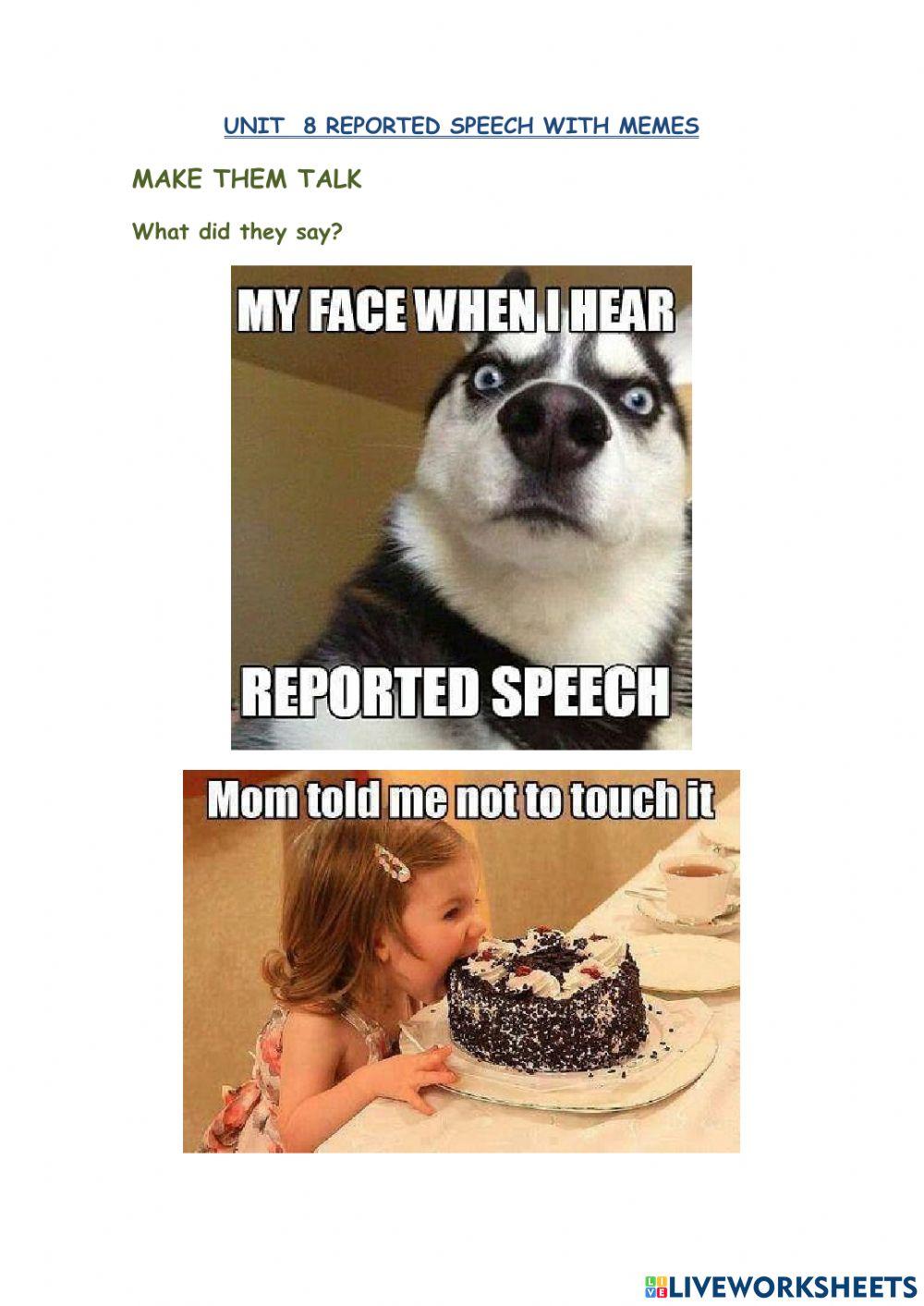
- Cambridge Dictionary +Plus
Reported speech: indirect speech
Indirect speech focuses more on the content of what someone said rather than their exact words. In indirect speech , the structure of the reported clause depends on whether the speaker is reporting a statement, a question or a command.
Indirect speech: reporting statements
Indirect reports of statements consist of a reporting clause and a that -clause. We often omit that , especially in informal situations:
The pilot commented that the weather had been extremely bad as the plane came in to land. (The pilot’s words were: ‘The weather was extremely bad as the plane came in to land.’ )
I told my wife I didn’t want a party on my 50th birthday. ( that -clause without that ) (or I told my wife that I didn’t want a party on my 50th birthday .)
Indirect speech: reporting questions
Reporting yes-no questions and alternative questions.
Indirect reports of yes-no questions and questions with or consist of a reporting clause and a reported clause introduced by if or whether . If is more common than whether . The reported clause is in statement form (subject + verb), not question form:
She asked if [S] [V] I was Scottish. (original yes-no question: ‘Are you Scottish?’ )
The waiter asked whether [S] we [V] wanted a table near the window. (original yes-no question: ‘Do you want a table near the window? )
He asked me if [S] [V] I had come by train or by bus. (original alternative question: ‘Did you come by train or by bus?’ )
Questions: yes-no questions ( Are you feeling cold? )
Reporting wh -questions
Indirect reports of wh -questions consist of a reporting clause, and a reported clause beginning with a wh -word ( who, what, when, where, why, how ). We don’t use a question mark:
He asked me what I wanted.
Not: He asked me what I wanted?
The reported clause is in statement form (subject + verb), not question form:
She wanted to know who [S] we [V] had invited to the party.
Not: … who had we invited …
Who , whom and what
In indirect questions with who, whom and what , the wh- word may be the subject or the object of the reported clause:
I asked them who came to meet them at the airport. ( who is the subject of came ; original question: ‘Who came to meet you at the airport?’ )
He wondered what the repairs would cost. ( what is the object of cost ; original question: ‘What will the repairs cost?’ )
She asked us what [S] we [V] were doing . (original question: ‘What are you doing?’ )
Not: She asked us what were we doing?
When , where , why and how
We also use statement word order (subject + verb) with when , where, why and how :
I asked her when [S] it [V] had happened (original question: ‘When did it happen?’ ).
Not: I asked her when had it happened?
I asked her where [S] the bus station [V] was . (original question: ‘Where is the bus station?’ )
Not: I asked her where was the bus station?
The teacher asked them how [S] they [V] wanted to do the activity . (original question: ‘How do you want to do the activity?’ )
Not: The teacher asked them how did they want to do the activity?
Questions: wh- questions
Indirect speech: reporting commands
Indirect reports of commands consist of a reporting clause, and a reported clause beginning with a to -infinitive:
The General ordered the troops to advance . (original command: ‘Advance!’ )
The chairperson told him to sit down and to stop interrupting . (original command: ‘Sit down and stop interrupting!’ )
We also use a to -infinitive clause in indirect reports with other verbs that mean wanting or getting people to do something, for example, advise, encourage, warn :
They advised me to wait till the following day. (original statement: ‘You should wait till the following day.’ )
The guard warned us not to enter the area. (original statement: ‘You must not enter the area.’ )
Verbs followed by a to -infinitive
Indirect speech: present simple reporting verb
We can use the reporting verb in the present simple in indirect speech if the original words are still true or relevant at the time of reporting, or if the report is of something someone often says or repeats:
Sheila says they’re closing the motorway tomorrow for repairs.
Henry tells me he’s thinking of getting married next year.
Rupert says dogs shouldn’t be allowed on the beach. (Rupert probably often repeats this statement.)
Newspaper headlines
We often use the present simple in newspaper headlines. It makes the reported speech more dramatic:
JUDGE TELLS REPORTER TO LEAVE COURTROOM
PRIME MINISTER SAYS FAMILIES ARE TOP PRIORITY IN TAX REFORM
Present simple ( I work )
Reported speech
Reported speech: direct speech
Indirect speech: past continuous reporting verb
In indirect speech, we can use the past continuous form of the reporting verb (usually say or tell ). This happens mostly in conversation, when the speaker wants to focus on the content of the report, usually because it is interesting news or important information, or because it is a new topic in the conversation:
Rory was telling me the big cinema in James Street is going to close down. Is that true?
Alex was saying that book sales have gone up a lot this year thanks to the Internet.
‘Backshift’ refers to the changes we make to the original verbs in indirect speech because time has passed between the moment of speaking and the time of the report.
In these examples, the present ( am ) has become the past ( was ), the future ( will ) has become the future-in-the-past ( would ) and the past ( happened ) has become the past perfect ( had happened ). The tenses have ‘shifted’ or ‘moved back’ in time.
The past perfect does not shift back; it stays the same:
Modal verbs
Some, but not all, modal verbs ‘shift back’ in time and change in indirect speech.
We can use a perfect form with have + - ed form after modal verbs, especially where the report looks back to a hypothetical event in the past:
He said the noise might have been the postman delivering letters. (original statement: ‘The noise might be the postman delivering letters.’ )
He said he would have helped us if we’d needed a volunteer. (original statement: ‘I’ll help you if you need a volunteer’ or ‘I’d help you if you needed a volunteer.’ )
Used to and ought to do not change in indirect speech:
She said she used to live in Oxford. (original statement: ‘I used to live in Oxford.’ )
The guard warned us that we ought to leave immediately. (original statement: ‘You ought to leave immediately.’ )
No backshift
We don’t need to change the tense in indirect speech if what a person said is still true or relevant or has not happened yet. This often happens when someone talks about the future, or when someone uses the present simple, present continuous or present perfect in their original words:
He told me his brother works for an Italian company. (It is still true that his brother works for an Italian company.)
She said she ’s getting married next year. (For the speakers, the time at the moment of speaking is ‘this year’.)
He said he ’s finished painting the door. (He probably said it just a short time ago.)
She promised she ’ll help us. (The promise applies to the future.)
Indirect speech: changes to pronouns
Changes to personal pronouns in indirect reports depend on whether the person reporting the speech and the person(s) who said the original words are the same or different.
Indirect speech: changes to adverbs and demonstratives
We often change demonstratives ( this, that ) and adverbs of time and place ( now, here, today , etc.) because indirect speech happens at a later time than the original speech, and perhaps in a different place.
Typical changes to demonstratives, adverbs and adverbial expressions
Indirect speech: typical errors.
The word order in indirect reports of wh- questions is the same as statement word order (subject + verb), not question word order:
She always asks me where [S] [V] I am going .
Not: She always asks me where am I going .
We don’t use a question mark when reporting wh- questions:
I asked him what he was doing.
Not: I asked him what he was doing?

Word of the Day
to fasten the belt that keeps you in your seat in a car or a plane

Searching out and tracking down: talking about finding or discovering things

Learn more with +Plus
- Recent and Recommended {{#preferredDictionaries}} {{name}} {{/preferredDictionaries}}
- Definitions Clear explanations of natural written and spoken English English Learner’s Dictionary Essential British English Essential American English
- Grammar and thesaurus Usage explanations of natural written and spoken English Grammar Thesaurus
- Pronunciation British and American pronunciations with audio English Pronunciation
- English–Chinese (Simplified) Chinese (Simplified)–English
- English–Chinese (Traditional) Chinese (Traditional)–English
- English–Dutch Dutch–English
- English–French French–English
- English–German German–English
- English–Indonesian Indonesian–English
- English–Italian Italian–English
- English–Japanese Japanese–English
- English–Norwegian Norwegian–English
- English–Polish Polish–English
- English–Portuguese Portuguese–English
- English–Spanish Spanish–English
- English–Swedish Swedish–English
- Dictionary +Plus Word Lists
To add ${headword} to a word list please sign up or log in.
Add ${headword} to one of your lists below, or create a new one.
{{message}}
Something went wrong.
There was a problem sending your report.
Fun Ways of Practising Reported Speech
1. Reported speech reversi Prepare cards with reported speech on one side and direct speech of the same sentence on the other. Students have to correctly say what is on the other side to turn it over and score one point. There are many games you can play with these cards, including the TEFL version of Reversi/ Othello that was first described by Mario Rinvolucri in Grammar Games and that is the subject of an upcoming article of mine.
2. Go betweens This is also a game from a classic TEFL supplementary book that can easily be done without access to the book (in this case Intermediate Communication Games). Two students have such a problem with each other that they are refusing to speak, and another student shuttles between them trying to find a compromise. The two students need to be sitting so far apart that they can’t hear the other people speak and so really need to listen to the peacemaker, e.g. by sitting in different rooms or one half of the students sitting in the corridor. Making both sides have complaints about the other and giving out roleplay cards can also help set up this activity well, as can having different groups of students working on different situations so that they can’t listen into the neighbouring teams. Possible situations to roleplay include students who have problems with the other students’ behaviour in class (speaking too much, not speaking enough, holding up the lesson because they haven’t done their homework, distracting the teacher from the lesson plan by asking questions, etc- maybe leading onto discussion of good classroom behaviour), neighbours, neighbouring countries, married couples, or suppliers and customers who are near breaking point in their relationship. This can also be used for non-conflict negotiations such as premarital contracts or price negotiations. Note that students usually get into this activity so much that they completely forget about Reported Speech, so you might want to do this as a controlled activity where they must make an effort to use the structures you have presented.
3. What they told you Give the students a list of people they have probably been spoken to by in their lives (e.g. teachers, policemen, future employers, immigration officers and market researchers) or brainstorm such a list onto the board. Students choose one of the people on the list and say things that this person really said to them, e.g. “He asked me whether I wanted a single or return”, and the other students guess which person from the list was speaking. As a more challenging extension, they can continue the game with people not on the list. This can also be done as Twenty Questions, e.g. “Has this person ever asked you whether you were carrying any drugs?” This game links well with the vocabulary of jobs or practising situational language such as “At the airport”. The same game can also be done with the vocabulary of relationships like “colleague”, “acquaintance” and “classmate”.
4. Reported speech pairwork dictation This idea lacks the fun element of the other games here (unless you choose or write an amusing dialogue or one with a surprising twist), but is easy to do and check and can lead to examination of things we usually leave out of reported speech such as “well” and “yes”. It can also be a lead in to the similar but more fun activities below. Student A has one person’s part of a dialogue and Student B has the other person’s part, and they convert their part into reported speech and tell their partner what the person on their worksheet said so that their partner can convert it back into direct speech (in their heads) and write it down in the gaps on their sheet. At the end when they check their worksheets with each other they should have identical dialogues written down. This activity can be made more challenging by one of the students having their half of the dialogue in mixed up order.
5. Reported speech pairwork dictation same or different A more intellectually challenging version of pairwork dictation is giving students similar but not identical direct speech sentences on Student A and Student B sheets. They dictate them to each other in reported speech and work together to decide if the original two sentences were the same or not, e.g. Student A reports “Do you feel happy?” as “He asked me whether I felt happy” and Student B reports “Are you feeling happy?” as “He asked me if I was feeling happy”, and they decide together that the original sentences were different (without ever telling their partner exactly what is on their sheet). You can add some trick questions where the direct speech sentences are different but the reported speech versions are the same, e.g. “I have been there” and “I was there” or “I was there that day” and “I have been there today”. They might feel robbed if you include sentences like this as it will stop them finishing the game successfully, but they will really pay attention when you bring that grammar point up later!
6. Pairwork dictation match the sentences Another good way of using sentences that sound similar when converted into reported speech (either correctly or wrongly) is to put the same direct speech sentences on Student A’s and Student B’s worksheets but mixed up and labelled 1 to 10 (for example) on one student’s and a to j on the other. They then dictate them to each other in reported speech and decide which ones are the same.
7. Pairwork dictation match the dialogue pairs Rather than matching identical sentences as above, you can add extra language and challenge by the students trying to match up typical functional language sentence pairs such as “Would you like anything else?” on Student A’s sheet and “No, that’s all thanks” on Student B’s. The sentences on their worksheets can be given in reported speech for them just to read out and convert back to direct speech in their heads while trying to work out which typical sentences or (more challenging) be given as direct speech for them to convert to reported speech when they tell them to their partner as in the games above.
8. Reported Speech sentence completion guessing game Give the students a list of sentence stems that should be completed with reported speech such as “I forgot to tell someone…”, “ or “Someone told me that I…”. They complete as many sentences as they can and then read out only the part they have written for the other students to guess which sentence that comes from.
9. Guess the backshift Students tell their partner(s) something that was said to them in direct speech (maybe using the air speech marks gesture), and their partner(s) convert it into reported speech, using the right kind of backshift or not by guessing whether it is something that is generally true about them, whether it is something their brother always says to them or whether it was a one off thing that is no longer true, e.g. choosing to convert “My brother said ‘You look sad’” to “Your brother said that you looked sad” or “Your brother (often) says that you look sad/ your brother once said that you always look sad” depending on whether they think that is generally true or not.
10. The … thing he ever said Give prompts containing superlatives for real things people said to them, e.g. “The worst thing your siblings have said to you” or “The best advice you have ever had”. Students tell their partner(s) one of these things, and their partners guess which prompt it refers to.
11. Referring to who guessing game Students report something they said or heard about someone else, e.g. gossip about someone famous, news about a politician, a reviewer’s opinion on someone’s acting or a colleague slagging off their boss, and the other students guess who was being spoken about.
12. Which occasion Students tell their partners something that was said to them at an important time, e.g. when they graduated from university or the first time their parents talked to them about sex, and their partners guess which occasion that thing was said at. The list of occasions can be given as a worksheet or brainstormed onto the board. This topic can easily be extended into an interesting cross cultural discussion on the traditional lack of school graduation ceremonies in the UK etc.
13. And this is how I felt sentence completion Students report something that was said to them or they heard that they had a strong emotional reaction to and the other students guess what their reaction was. This ties in well with a lesson on adjectives, and you can maybe give them a worksheet with some suggested adjectives on or brainstorm them before the activity, such as “… and I felt sad/ hungry/ romantic/ nostalgic/ old/ young/ flattered”
14. Reported mingling Almost any mingling activity (e.g. Find Someone Who) can be extended to include reported speech by people reporting back to their partners or the class what they learnt. Before doing this you will need to decide whether you want to encourage them to use Reported Speech or whether it is something you hope will come up naturally and that you might bring up later in an error correction stage.
15. Real or imagined reported speech This one works well with students whose memories freeze under the stress of speaking English or who don’t want to give away too much personal information. Students report something from prompts such as those described above, and then the other students guess whether that was really said to them or whether it was just made up.
You may also like:
- Yet Another 15 Games for Reported Speech
- More Reported Speech Games
- 15 Fun Ways of Practising the Past Perfect
11 Comments
thank for the material. it can add my knowledge. it used for may activity
The worksheets link I gave is still working, but the other parts of the article are now here: https://www.tefl.net/elt/ideas/games/games-reported-speech/ https://www.tefl.net/elt/ideas/games/reported-speech-games/
Great ideas shared, Alex!
I’ll try “And this is how I felt” with a twist to be carried out with my online students. I’ll include as a prompt: watching a short video like the ones that appear on Instagram (emotionally charged), for them to react to and report what was said and how it made them feel.
Let’s see how it works! Many thanks for the inspiration :)
Thanks, great ideas to use in my classroom.
Great ideas!! I will definetely try some in my classrrom. Thanks!!
Great ideas, thanks! I incorporated a few themes into a find someone who to start the topic of reported speech:
Find someone who:
1. Can remember some good advice they received
2. Has overheard an interesting conversation recently
3. Has had an interesting discussion recently
4. Knows some celebrity gossip
5. Has heard a joke in English
Parts Two and Three of this article are here:
http://www.tefl.net/elt/ideas/games/reported-speech-games/
http://www.tefl.net/elt/ideas/games/games-reported-speech/
And there are some worksheets here:
https://tefltastic.wordpress.com/worksheets/grammar/reported-speech/
excellent ideas, i will try some of them in my class today. thank you
Great activities. I tried “This is How I felt” as a follow-up and it really worked. Thanks
Hey there, speaking of Reversi games, I just posted a variation for teachers to use in one-to-one classes.
http://strictly4myteacherz.wordpress.com/2009/01/10/phrasal-verb-reversi-for-one-to-one/
Leave a comment
Email * (not published)
Search This Blog
Mr p's ict blog - tech to raise standards.
My blog will share creative ideas to raise standards across the curriculum using technology. Mr P provides inset, keynotes and training to schools internationally looking for innovative ideas to engage, inspire and transform learning. Training is delivered by a real teacher with real ideas for using tech to enhance learning across the curriculum. You can access all of Mr P's CPD online by subscribing to MrPICT.com
Teaching Direct Speech with Memes

Love this idea. Doing direct speech for the firs time with my year 3s. Using Inside Out memes, just starting with simple speech bubbles and then the next lesson will be highlighting the reporting clause and extra description.
Post a Comment
Popular posts from this blog, a lovely poem for your leavers assembly.

QR Codes - So much potential!
Teaching Direct Speech Punctuation using the iPhone text messaging!
.png)
Reported Speech – Rules, Examples & Worksheet
| Candace Osmond
Candace Osmond
Candace Osmond studied Advanced Writing & Editing Essentials at MHC. She’s been an International and USA TODAY Bestselling Author for over a decade. And she’s worked as an Editor for several mid-sized publications. Candace has a keen eye for content editing and a high degree of expertise in Fiction.
They say gossip is a natural part of human life. That’s why language has evolved to develop grammatical rules about the “he said” and “she said” statements. We call them reported speech.
Every time we use reported speech in English, we are talking about something said by someone else in the past. Thinking about it brings me back to high school, when reported speech was the main form of language!
Learn all about the definition, rules, and examples of reported speech as I go over everything. I also included a worksheet at the end of the article so you can test your knowledge of the topic.
What Does Reported Speech Mean?

Reported speech is a term we use when telling someone what another person said. You can do this while speaking or writing.
There are two kinds of reported speech you can use: direct speech and indirect speech. I’ll break each down for you.
A direct speech sentence mentions the exact words the other person said. For example:
- Kryz said, “These are all my necklaces.”
Indirect speech changes the original speaker’s words. For example:
- Kryz said those were all her necklaces.
When we tell someone what another individual said, we use reporting verbs like told, asked, convinced, persuaded, and said. We also change the first-person figure in the quotation into the third-person speaker.
Reported Speech Examples
We usually talk about the past every time we use reported speech. That’s because the time of speaking is already done. For example:
- Direct speech: The employer asked me, “Do you have experience with people in the corporate setting?”
Indirect speech: The employer asked me if I had experience with people in the corporate setting.
- Direct speech: “I’m working on my thesis,” I told James.
Indirect speech: I told James that I was working on my thesis.
Reported Speech Structure
A speech report has two parts: the reporting clause and the reported clause. Read the example below:
- Harry said, “You need to help me.”
The reporting clause here is William said. Meanwhile, the reported clause is the 2nd clause, which is I need your help.
What are the 4 Types of Reported Speech?
Aside from direct and indirect, reported speech can also be divided into four. The four types of reported speech are similar to the kinds of sentences: imperative, interrogative, exclamatory, and declarative.
Reported Speech Rules
The rules for reported speech can be complex. But with enough practice, you’ll be able to master them all.
Choose Whether to Use That or If
The most common conjunction in reported speech is that. You can say, “My aunt says she’s outside,” or “My aunt says that she’s outside.”
Use if when you’re reporting a yes-no question. For example:
- Direct speech: “Are you coming with us?”
Indirect speech: She asked if she was coming with them.
Verb Tense Changes
Change the reporting verb into its past form if the statement is irrelevant now. Remember that some of these words are irregular verbs, meaning they don’t follow the typical -d or -ed pattern. For example:
- Direct speech: I dislike fried chicken.
Reported speech: She said she disliked fried chicken.
Note how the main verb in the reported statement is also in the past tense verb form.
Use the simple present tense in your indirect speech if the initial words remain relevant at the time of reporting. This verb tense also works if the report is something someone would repeat. For example:
- Slater says they’re opening a restaurant soon.
- Maya says she likes dogs.
This rule proves that the choice of verb tense is not a black-and-white question. The reporter needs to analyze the context of the action.
Move the tense backward when the reporting verb is in the past tense. That means:
- Present simple becomes past simple.
- Present perfect becomes past perfect.
- Present continuous becomes past continuous.
- Past simple becomes past perfect.
- Past continuous becomes past perfect continuous.
Here are some examples:
- The singer has left the building. (present perfect)
He said that the singers had left the building. (past perfect)
- Her sister gave her new shows. (past simple)
- She said that her sister had given her new shoes. (past perfect)
If the original speaker is discussing the future, change the tense of the reporting verb into the past form. There’ll also be a change in the auxiliary verbs.
- Will or shall becomes would.
- Will be becomes would be.
- Will have been becomes would have been.
- Will have becomes would have.
For example:
- Direct speech: “I will be there in a moment.”
Indirect speech: She said that she would be there in a moment.
Do not change the verb tenses in indirect speech when the sentence has a time clause. This rule applies when the introductory verb is in the future, present, and present perfect. Here are other conditions where you must not change the tense:
- If the sentence is a fact or generally true.
- If the sentence’s verb is in the unreal past (using second or third conditional).
- If the original speaker reports something right away.
- Do not change had better, would, used to, could, might, etc.
Changes in Place and Time Reference
Changing the place and time adverb when using indirect speech is essential. For example, now becomes then and today becomes that day. Here are more transformations in adverbs of time and places.
- This – that.
- These – those.
- Now – then.
- Here – there.
- Tomorrow – the next/following day.
- Two weeks ago – two weeks before.
- Yesterday – the day before.
Here are some examples.
- Direct speech: “I am baking cookies now.”
Indirect speech: He said he was baking cookies then.
- Direct speech: “Myra went here yesterday.”
Indirect speech: She said Myra went there the day before.
- Direct speech: “I will go to the market tomorrow.”
Indirect speech: She said she would go to the market the next day.
Using Modals

If the direct speech contains a modal verb, make sure to change them accordingly.
- Will becomes would
- Can becomes could
- Shall becomes should or would.
- Direct speech: “Will you come to the ball with me?”
Indirect speech: He asked if he would come to the ball with me.
- Direct speech: “Gina can inspect the room tomorrow because she’s free.”
Indirect speech: He said Gina could inspect the room the next day because she’s free.
However, sometimes, the modal verb should does not change grammatically. For example:
- Direct speech: “He should go to the park.”
Indirect speech: She said that he should go to the park.
Imperative Sentences
To change an imperative sentence into a reported indirect sentence, use to for imperative and not to for negative sentences. Never use the word that in your indirect speech. Another rule is to remove the word please . Instead, say request or say. For example:
- “Please don’t interrupt the event,” said the host.
The host requested them not to interrupt the event.
- Jonah told her, “Be careful.”
- Jonah ordered her to be careful.
Reported Questions
When reporting a direct question, I would use verbs like inquire, wonder, ask, etc. Remember that we don’t use a question mark or exclamation mark for reports of questions. Below is an example I made of how to change question forms.
- Incorrect: He asked me where I live?
Correct: He asked me where I live.
Here’s another example. The first sentence uses direct speech in a present simple question form, while the second is the reported speech.
- Where do you live?
She asked me where I live.
Wrapping Up Reported Speech
My guide has shown you an explanation of reported statements in English. Do you have a better grasp on how to use it now?
Reported speech refers to something that someone else said. It contains a subject, reporting verb, and a reported cause.
Don’t forget my rules for using reported speech. Practice the correct verb tense, modal verbs, time expressions, and place references.
Grammarist is a participant in the Amazon Services LLC Associates Program, an affiliate advertising program designed to provide a means for sites to earn advertising fees by advertising and linking to Amazon.com. When you buy via the links on our site, we may earn an affiliate commission at no cost to you.
2024 © Grammarist, a Found First Marketing company. All rights reserved.
Time and Place in Reported Speech
When we report something, we may need to make changes to:
- time (now, tomorrow)
- place (here, this room)
If we report something around the same time, then we probably do not need to make any changes to time words . But if we report something at a different time, we need to change time words. Look at these example sentences:
- He said: "It was hot yesterday ." → He said that it had been hot the day before .
- He said: "We are going to swim tomorrow ." → He said they were going to swim the next day .
Here is a list of common time words, showing how you change them for reported speech:

Place words
If we are in the same place when we report something, then we do not need to make any changes to place words . But if we are in a different place when we report something, then we need to change the place words. Look at these example sentences:
- He said: "It is cold in here ." → He said that it was cold in there .
- He said: "How much is this book ?" → He asked how much the book was.
Here are some common place words, showing how you change them for reported speech:

Reported Speech Exercises
Perfect english grammar.

Here's a list of all the reported speech exercises on this site:
( Click here to read the explanations about reported speech )
Reported Statements:
- Present Simple Reported Statement Exercise (quite easy) (in PDF here)
- Present Continuous Reported Statement Exercise (quite easy) (in PDF here)
- Past Simple Reported Statement Exercise (quite easy) (in PDF here)
- Present Perfect Reported Statement Exercise (quite easy) (in PDF here)
- Future Simple Reported Statement Exercise (quite easy) (in PDF here)
- Mixed Tense Reported Statement Exercise (intermediate) (in PDF here)
- 'Say' and 'Tell' (quite easy) (in PDF here)
Reported Questions:
- Present Simple Reported Yes/No Question Exercise (intermediate) (in PDF here)
- Present Simple Reported Wh Question Exercise (intermediate) (in PDF here)
- Mixed Tense Reported Question Exercise (intermediate) (in PDF here)
Reported Orders and Requests:
- Reported Requests and Orders Exercise (intermediate) (in PDF here)
- Reported Speech Mixed Exercise 1 (difficult) (in PDF here)
- Reported Speech Mixed Exercise 2 (difficult) (in PDF here)

Hello! I'm Seonaid! I'm here to help you understand grammar and speak correct, fluent English.

Read more about our learning method
Reported Speech – Free Exercise
Write the following sentences in indirect speech. Pay attention to backshift and the changes to pronouns, time, and place.
- Two weeks ago, he said, “I visited this museum last week.” → Two weeks ago, he said that . I → he|simple past → past perfect|this → that|last …→ the … before
- She claimed, “I am the best for this job.” → She claimed that . I → she|simple present→ simple past|this→ that
- Last year, the minister said, “The crisis will be overcome next year.” → Last year, the minister said that . will → would|next …→ the following …
- My riding teacher said, “Nobody has ever fallen off a horse here.” → My riding teacher said that . present perfect → past perfect|here→ there
- Last month, the boss explained, “None of my co-workers has to work overtime now.” → Last month, the boss explained that . my → his/her|simple present→ simple past|now→ then
Rewrite the question sentences in indirect speech.
- She asked, “What did he say?” → She asked . The subject comes directly after the question word.|simple past → past perfect
- He asked her, “Do you want to dance?” → He asked her . The subject comes directly after whether/if |you → she|simple present → simple past
- I asked him, “How old are you?” → I asked him . The subject comes directly after the question word + the corresponding adjective (how old)|you→ he|simple present → simple past
- The tourists asked me, “Can you show us the way?” → The tourists asked me . The subject comes directly after whether/if |you→ I|us→ them
- The shop assistant asked the woman, “Which jacket have you already tried on?” → The shop assistant asked the woman . The subject comes directly after the question word|you→ she|present perfect → past perfect
Rewrite the demands/requests in indirect speech.
- The passenger requested the taxi driver, “Stop the car.” → The passenger requested the taxi driver . to + same wording as in direct speech
- The mother told her son, “Don’t be so loud.” → The mother told her son . not to + same wording as in direct speech, but remove don’t
- The policeman told us, “Please keep moving.” → The policeman told us . to + same wording as in direct speech ( please can be left off)
- She told me, “Don’t worry.” → She told me . not to + same wording as in direct speech, but remove don’t
- The zookeeper told the children, “Don’t feed the animals.” → The zookeeper told the children . not to + same wording as in direct speech, but remove don’t
How good is your English?
Find out with Lingolia’s free grammar test
Take the test!
Maybe later
- English Grammar
- Reported Speech
Reported Speech - Definition, Rules and Usage with Examples
Reported speech or indirect speech is the form of speech used to convey what was said by someone at some point of time. This article will help you with all that you need to know about reported speech, its meaning, definition, how and when to use them along with examples. Furthermore, try out the practice questions given to check how far you have understood the topic.

Table of Contents
Definition of reported speech, rules to be followed when using reported speech, table 1 – change of pronouns, table 2 – change of adverbs of place and adverbs of time, table 3 – change of tense, table 4 – change of modal verbs, tips to practise reported speech, examples of reported speech, check your understanding of reported speech, frequently asked questions on reported speech in english, what is reported speech.
Reported speech is the form in which one can convey a message said by oneself or someone else, mostly in the past. It can also be said to be the third person view of what someone has said. In this form of speech, you need not use quotation marks as you are not quoting the exact words spoken by the speaker, but just conveying the message.
Now, take a look at the following dictionary definitions for a clearer idea of what it is.
Reported speech, according to the Oxford Learner’s Dictionary, is defined as “a report of what somebody has said that does not use their exact words.” The Collins Dictionary defines reported speech as “speech which tells you what someone said, but does not use the person’s actual words.” According to the Cambridge Dictionary, reported speech is defined as “the act of reporting something that was said, but not using exactly the same words.” The Macmillan Dictionary defines reported speech as “the words that you use to report what someone else has said.”
Reported speech is a little different from direct speech . As it has been discussed already, reported speech is used to tell what someone said and does not use the exact words of the speaker. Take a look at the following rules so that you can make use of reported speech effectively.
- The first thing you have to keep in mind is that you need not use any quotation marks as you are not using the exact words of the speaker.
- You can use the following formula to construct a sentence in the reported speech.
- You can use verbs like said, asked, requested, ordered, complained, exclaimed, screamed, told, etc. If you are just reporting a declarative sentence , you can use verbs like told, said, etc. followed by ‘that’ and end the sentence with a full stop . When you are reporting interrogative sentences, you can use the verbs – enquired, inquired, asked, etc. and remove the question mark . In case you are reporting imperative sentences , you can use verbs like requested, commanded, pleaded, ordered, etc. If you are reporting exclamatory sentences , you can use the verb exclaimed and remove the exclamation mark . Remember that the structure of the sentences also changes accordingly.
- Furthermore, keep in mind that the sentence structure , tense , pronouns , modal verbs , some specific adverbs of place and adverbs of time change when a sentence is transformed into indirect/reported speech.
Transforming Direct Speech into Reported Speech
As discussed earlier, when transforming a sentence from direct speech into reported speech, you will have to change the pronouns, tense and adverbs of time and place used by the speaker. Let us look at the following tables to see how they work.
Here are some tips you can follow to become a pro in using reported speech.
- Select a play, a drama or a short story with dialogues and try transforming the sentences in direct speech into reported speech.
- Write about an incident or speak about a day in your life using reported speech.
- Develop a story by following prompts or on your own using reported speech.
Given below are a few examples to show you how reported speech can be written. Check them out.
- Santana said that she would be auditioning for the lead role in Funny Girl.
- Blaine requested us to help him with the algebraic equations.
- Karishma asked me if I knew where her car keys were.
- The judges announced that the Warblers were the winners of the annual acapella competition.
- Binsha assured that she would reach Bangalore by 8 p.m.
- Kumar said that he had gone to the doctor the previous day.
- Lakshmi asked Teena if she would accompany her to the railway station.
- Jibin told me that he would help me out after lunch.
- The police ordered everyone to leave from the bus stop immediately.
- Rahul said that he was drawing a caricature.
Transform the following sentences into reported speech by making the necessary changes.
1. Rachel said, “I have an interview tomorrow.”
2. Mahesh said, “What is he doing?”
3. Sherly said, “My daughter is playing the lead role in the skit.”
4. Dinesh said, “It is a wonderful movie!”
5. Suresh said, “My son is getting married next month.”
6. Preetha said, “Can you please help me with the invitations?”
7. Anna said, “I look forward to meeting you.”
8. The teacher said, “Make sure you complete the homework before tomorrow.”
9. Sylvester said, “I am not going to cry anymore.”
10. Jade said, “My sister is moving to Los Angeles.”
Now, find out if you have answered all of them correctly.
1. Rachel said that she had an interview the next day.
2. Mahesh asked what he was doing.
3. Sherly said that her daughter was playing the lead role in the skit.
4. Dinesh exclaimed that it was a wonderful movie.
5. Suresh said that his son was getting married the following month.
6. Preetha asked if I could help her with the invitations.
7. Anna said that she looked forward to meeting me.
8. The teacher told us to make sure we completed the homework before the next day.
9. Sylvester said that he was not going to cry anymore.
10. Jade said that his sister was moving to Los Angeles.
What is reported speech?
What is the definition of reported speech.
Reported speech, according to the Oxford Learner’s Dictionary, is defined as “a report of what somebody has said that does not use their exact words.” The Collins Dictionary defines reported speech as “speech which tells you what someone said, but does not use the person’s actual words.” According to the Cambridge Dictionary, reported speech is defined as “the act of reporting something that was said, but not using exactly the same words.” The Macmillan Dictionary defines reported speech as “the words that you use to report what someone else has said.”
What is the formula of reported speech?
You can use the following formula to construct a sentence in the reported speech. Subject said that (report whatever the speaker said)
Give some examples of reported speech.
Given below are a few examples to show you how reported speech can be written.
Leave a Comment Cancel reply
Your Mobile number and Email id will not be published. Required fields are marked *
Request OTP on Voice Call
Post My Comment
- Share Share
Register with BYJU'S & Download Free PDFs
Register with byju's & watch live videos.

speech Meme Templates
Bernie sanders reaction (nuked).

Lisa Simpson Speech

hitler speech

Nancy Pelosi tears speech

Freedom of Speech

Cliff Announcement

Speechless Stickman

Clone trooper gives speech
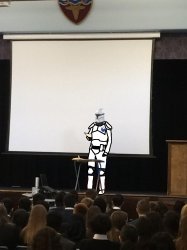
Speech Normal Rockwell

the head speech bubble

Bane Speech

Nancy Pelosi rips paper

Discord Speech Bubble

Boris Johnson Speech

Nancy Pelosi rips Trump speech

speech bubble transparent

Undertale Text Box

ROBLOX speech chat

skyrim speech 100

I'm Speechless

Speechless Colbert Face

femboy boykisser speech bubble

Joe biden creepy hitler speech

Spiderman speech
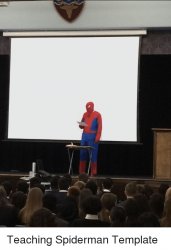
SrGrafo Not So Angry Speech

trump speech

Joe Biden Speech

Game was Rigged from the Start

Sanctuary Guardian Template

Lil Nas Speech

why isn't the communist flag hate speech?

You too can become ____

Spider-Man presentation
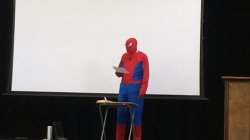
Turn your images into speech bubble memes with ease!
Drag 'n' drop your image here, or click to select one
Frequenty asked questions
What is Speechmeme?
Speechmeme is a tool that allows you to easily turn images into trendy and popular speech bubble memes, often seen in chat messages on social platforms like discord.
What type of images do you support?
You can currently use any image format such as JPEG, PNG, GIF, BMP, SVG, WEBP, TIFF, AI, PSD, EPS, PDF, SVG, and more.
Why did you make this?
I made this tool because I often found content on Discord and other social media platforms that needed to be turned into a speech bubble meme. However, when I tried to find a reliable speech bubble meme generator on Google, I couldn't find any suitable websites. Let's be honest, nobody wants to search for a template and then go through the trouble of editing it to fit their needs. That's why I created this tool.
Why is the output image always of type '.gif'?
Discord only permits you to star/favorite gifs. Since many people enjoy favoriting speech bubble memes, I concluded it was the optimal choice to make.
Can I delete my images?
Images uploaded to our public gallery can be easily deleted by clicking on the little trash can icon in the top right corner of your post.
Is this free?
This speech bubble meme maker will forever stay free. I hope you enjoy using it!
Reported speech - Memes
Harrison Butker Said His Benedictine College Commencement Speech Taken 'Out of Context'?
According to online posts, butker supposedly clarified in a statement, "all i said is that we should go back to a better time, like the 50s and 60s.", jordan liles, published may 16, 2024.
About this rating
On May 16, 2024, numerous users on Facebook , TikTok and X reposted a quote meme featuring a purported statement from Kansas City Chiefs kicker and 3-time Super Bowl champion Harrison Butker. The statement supposedly constituted Butker's response to some backlash following his May 11 commencement speech at Kansas' Benedictine College, a private Catholic liberal arts school.
In one post on X displayed to over 1 million users, the viral quote meme showing a photo of Butker read, "Everyone is taking what I said out of context. All I said is that we should go back to a better time, like the 50s and 60s. When men were men, and women had more babies than thoughts. When the only 'Me too' movement was one woman saying she was ready for her 4th child, and another woman agreeing." The end of the meme added Butker's name with the words "on setting the record straight."

A TikTok video promoting the quote meme as genuine also received more than 800,000 views within five hours of being uploaded, making it another one of the more prominent reposts.
However, Butker did not release a statement with these words, nor did he appear to publicly release any statements following his speech. A closer look at the quote meme reveals a watermark for "@TheSportsMemery" — a reference to the Facebook page named The Sports Memery. The Facebook page's description describes its output as containing satire and parody.
The Associated Press reported Butker's speech featured some remarks on the subjects of women and motherhood, Pride month, in vitro fertilization (IVF) and President Joe Biden's policies regarding abortion and the COVID-19 pandemic, among others.
Readers looking to watch Butker's address in its original form can find the full, unedited speech in a video posted on the Benedictine College YouTube channel. The video ends with many of the people in attendance giving Butker a standing ovation.
The National Catholic Register also published a complete transcript of the address.
"Chiefs Kicker Butker Congratulates Women Graduates and Says Most Are More Excited about Motherhood." The Associated Press , 16 May 2024, https://apnews.com/article/kansas-city-chiefs-harrison-butker-e00f6ee45955c99ef1e809ec447239e0.
"Full Text: Harrison Butker of Kansas City Chiefs Graduation Speech." NCR , 16 May 2024, https://www.ncregister.com/news/harrison-butker-speech-at-benedictine.
"Harrison Butker | Commencement Address 2024 | Benedictine College." YouTube , Benedictine College, 11 May 2024, https://www.youtube.com/watch?v=-JS7RIKSaCc.
May 17, 2024: This report was updated to add the five words appearing under Butker's name in the quote meme.
By Jordan Liles
Jordan Liles is a Senior Reporter who has been with Snopes since 2016.
Article Tags

Fact Check: Rumor Claims Harrison Butker Said 'We Should Go Back To a Better Time, Like the '50s and '60s.' Here's the Truth
Kansas City Chiefs kicker Harrison Butker said in a statement that his speech at a 2024 commencement at Benedictine College was taken "out of context," adding in part, "All I said is that we should go back to a better time, like the 50s and 60s."
Originated as Satire ( About this rating? )
In May 2024, numerous users on Facebook , TikTok and X reposted a quote meme showing a supposed statement from Kansas City Chiefs kicker and three-time Super Bowl champion Harrison Butker. Users claimed the words in the quote meme were Butker's official response to backlash that followed his May 11 commencement speech at Kansas' Benedictine College, a private Catholic liberal arts school.
In one post on X displayed to over 1 million users, the meme showing a photo of Butker read, "Everyone is taking what I said out of context. All I said is that we should go back to a better time, like the 50s and 60s. When men were men, and women had more babies than thoughts. When the only 'Me too' movement was one woman saying she was ready for her 4th child, and another woman agreeing." The end of the meme added Butker's name with the words "on setting the record straight."
A TikTok video promoting the quote meme as genuine also received more than 1.4 million views within one day of being uploaded, making it another one of the more prominent reposts.
However, Butker did not release a statement with these words, nor did he appear to publicly release any statements following his speech. A closer look at the quote meme reveals a watermark for "@TheSportsMemery" — a reference to the Facebook page named The Sports Memery. The Facebook page's description describes its output as containing satire and parody.
https://www.facebook.com/thesportsmemery/posts/pfbid02zzovtYR6puxfU3NR4kcmgmfWZP11trXS3P3zNDYgRp2EEKV2GoaHkrDK1RYYDvdol
The Associated Press reported Butker's speech featured some remarks on the subjects of women and motherhood, Pride month, in vitro fertilization and U.S. President Joe Biden's policies regarding abortion and the COVID-19 pandemic, among others.
Readers looking to watch Butker's address in its original form can find the full, unedited speech in a video posted on the Benedictine College YouTube channel. The video ends with many of the people in attendance giving Butker a standing ovation.
The National Catholic Register also published a complete transcript of the address.
"Chiefs Kicker Butker Congratulates Women Graduates and Says Most Are More Excited about Motherhood." The Associated Press , 16 May 2024, https://apnews.com/article/kansas-city-chiefs-harrison-butker-e00f6ee45955c99ef1e809ec447239e0 .
"Full Text: Harrison Butker of Kansas City Chiefs Graduation Speech." NCR , 16 May 2024, https://www.ncregister.com/news/harrison-butker-speech-at-benedictine .
"Harrison Butker | Commencement Address 2024 | Benedictine College." YouTube , Benedictine College, 11 May 2024, https://www.youtube.com/watch?v=-JS7RIKSaCc .


@AdamAlbilya/X @ferdinandoiu/X
Who is Eli Kopter? Meme suggesting Mossad agent took out Iranian president spirals out of control
A news anchor gaffe sparked a meme..

Marlon Ettinger
Posted on May 20, 2024
A news analyst on i24News’s French-language news program claimed that a Hamas Telegram group had blamed Israel’s spy agency Mossad for the downing of a helicopter on Sunday which killed Iran’s president Ebrahim Raisi and Foreign Minister Hossein Amir Abdollahian.
Mossad Agent Eli Kopter has rightfully earned his moment of fame on i24News! 🔥 Now, you can watch it with English subtitles! 🚁 pic.twitter.com/YsxCUFg0S9 — Adam Albilya – אדם אלביליה (@AdamAlbilya) May 20, 2024
The claim, which the analyst attributed to an unofficial Telegram group and acknowledged was just part of the “rumor mill,” was quickly mocked as an obvious joke that got out of hand. The post he cited also claims that the Mossad agent behind the downing of the aircraft is called Eli Kopter, a play on words that works just as well in English as it does in French, which he was speaking.
Al Qassem Brigades (Hamas) publishes that the pilot of Raisi’s helicopter was a Mossad agent named "Eli Kopter" Not a joke 😂 pic.twitter.com/4enotOaR7A — Emily Schrader – אמילי שריידר امیلی شریدر (@emilykschrader) May 19, 2024
The analyst behind the report, Daniel Haik, was relaying the Telegram post late at night after the crash was initially reported, reported the Jewish Chronicle .
Raisi and Abdollahian died in the helicopter crash on Sunday after a “technical failure” forced the helicopter down in the rocky, mountainous region outside of Jolda near Iran’s border with Azerbaijan, reported the New York Times .
Iran’s former foreign minister Javad Zarif blamed the crash in part on U.S. sanctions on Iran’s aviation ministry, but no direct foul play has been alleged in the incident.
That didn’t stop posters from riffing on the “Eli Kopter” gaffe by Haik, joking that it was a real person who’d downed the helicopter in service to Israel.
“A new 🇮🇱 national hero,” posted @ferdinandoiu on X over a photo of an AI-generated Mossad ID card bearing Agent Kopter’s name.
A new 🇮🇱 national hero 🫡 pic.twitter.com/y0df6IZxv0 — Ferdinando Iuliano 🇮🇹🇨🇦 (@ferdinandoiu) May 19, 2024
“Exclusive footage of @TheMossadIL agent, Eli Copter, training for his mission,” posted @FrumTikTok over a video of an Orthodox Jewish man piloting an arcade jet haphazardly through mountains.
Exclusive footage of @TheMossadIL agent, Eli Copter, training for his mission. 🚁 pic.twitter.com/ps7K6b9448 — Frum TikTok (@FrumTikTok) May 19, 2024
Not everybody was amused by the gaffe though.
“If this doesn’t tell you how stupid the media is I don’t know what else will,” posted @Yak_is_here.
The internet is chaotic—but we’ll break it down for you in one daily email. Sign up for the Daily Dot’s web_crawlr newsletter here to get the best (and worst) of the internet straight into your inbox.
Marlon Ettinger writes about politics, crime, and culture. Email him with tips and ideas at [email protected].

- International
May 19, 2024 helicopter crash involving Iranian president
By Antoinette Radford, Dakin Andone, Michelle Shen, Steve Almasy, Matt Meyer and Kathleen Magramo, CNN
Iranian media has confirmed the death of Iran's President Ebrahim Raisi. Our live coverage continues here .
President Raisi was likely traveling on a Bell 212 helicopter acquired before the Iranian Revolution, military expert says
From CNN's Rhea Mogul
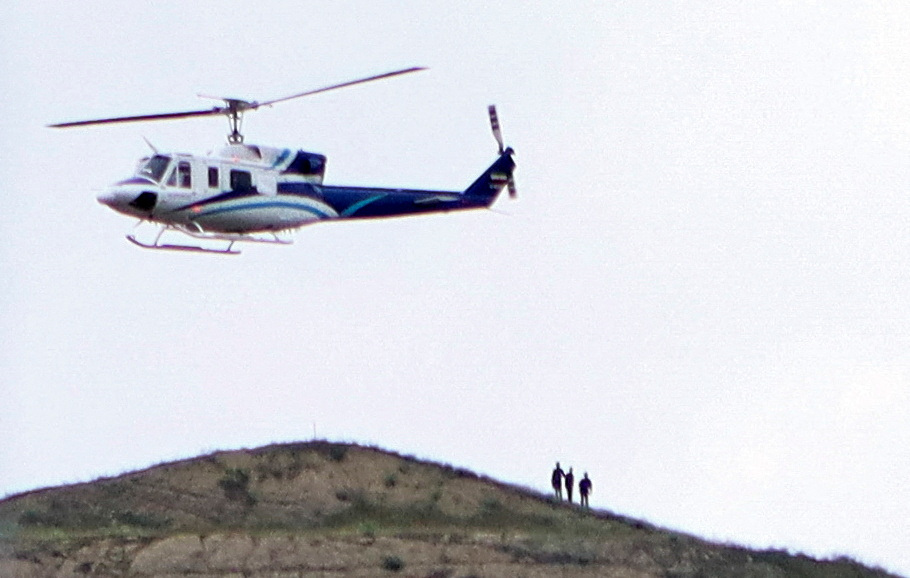
Iranian President Ebrahim Raisi was likely traveling on a Bell 212 helicopter that began operating in the late 1960s, according to CNN military analyst Cedric Leighton.
Leighton told CNN's Paula Newton that the difficulty in obtaining spare parts could have played a factor in the crash.
The helicopter was first produced in the United States and then in Canada, Leighton, a retired US Air Force colonel, said.
“It was first introduced during the latter period of the Shah’s rule in 1976 in commercial form and it had a life before that in the US military, so the actual start of this particular type of helicopter may have been as early as the late 1960s,” Leighton said.
“So spare parts would have definitely been an issue for the Iranians.”
“In this particular case, I think this confluence of spare parts, because of the sanctions, plus the weather which was very bad over the last few days in this particular part of northwestern Iran. All of that, I think contributed to a series of incidents and a series of decisions that the pilot and possibly even the president himself made when it came to flying this aircraft… And unfortunately for them, the result is this crash.”
Drone footage shows wreckage of crashed helicopter
By CNN's Jerome Taylor
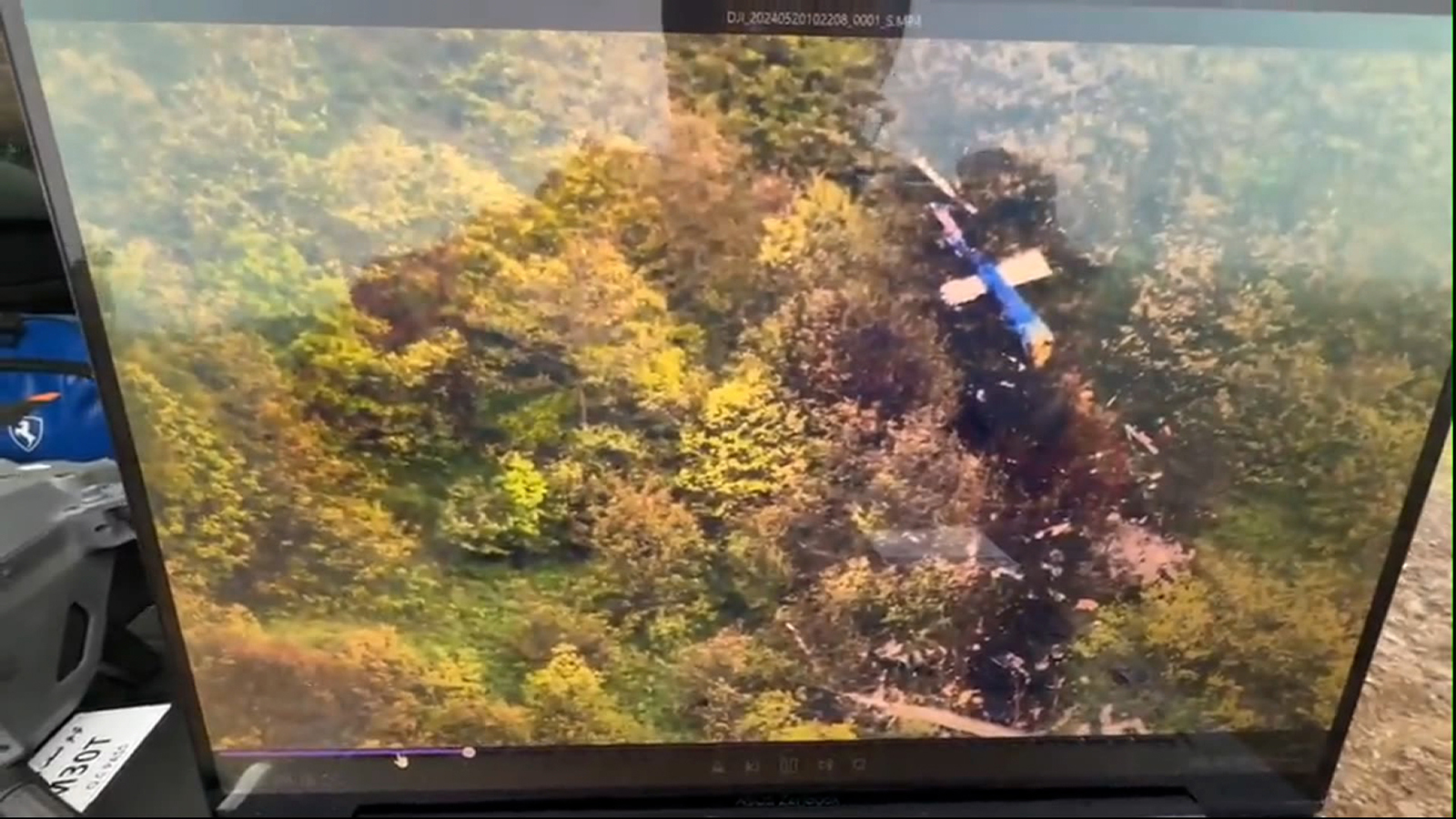
Iran’s president and foreign minister are presumed dead after Iranian media agencies reported that “no survivors” were found at the crash site of a helicopter carrying the two men and seven others.
Iran’s President Ebrahim Raisi and Foreign Minister Hossein Amir Abdollahian were among the senior officials on board the downed helicopter.
Drone footage of the wreckage taken by the Red Crescent and carried on state media FARS News Agency showed the crash site on a steep, wooded hillside, with little remaining of the helicopter beyond a blue and white tail.
No official announcement of their deaths has yet been made.
Reuters news agency also cited an unnamed Iranian official as saying all passengers are feared dead.
No signs of life from helicopter passengers, says head of Iranian Red Crescent
From CNN's Negar Mahmoodi
There are no signs of life from those traveling on the helicopter that crashed in Iran's East Azerbaijan province, said Pir-Hossein Kolivand, head of the Iranian Red Crescent, according to Iranian state news IRIB.
Iran's President Ebrahim Raisi is believed dead after Iranian agencies reported that "no survivors" were found at the crash site of a helicopter carrying the leader, Foreign Minister Hossein Amir Abdollahian, and seven others.
BREAKING: "No survivors" found at crash site of helicopter carrying Iran's President Ebrahim Raisi, Iranian agencies report
From CNN's Artemis Moshtaghian

"No survivors" were found at the crash site of the helicopter carrying Iran's President Ebrahim Raisi, Iranian state news agency IRINN and semi-official news agency Mehr News reported.
Some background: A former hardline judiciary chief, Raisi was Iran’s eighth president. The former prosecutor and judge was elected in 2021 following a historically uncompetitive presidential contest.
He oversaw a period of intensified repression of dissent , according to human rights monitors.
Next in the line of succession would be First Vice President Mohammad Mokhber, if approved by Iran’s Supreme Leader Ayatollah Ali Khamenei.
Iran's Supreme Leader serves as the final arbiter of domestic and foreign affairs in the Islamic Republic, dwarfing the powers of the country's president.
Unlike his predecessor, the moderate former President Hassan Rouhani, Raisi had fostered a close alliance with Khamenei. Many Iranians believed Raisi was being groomed to one day succeed the ailing 85-year-old Khamenei.
CNN's Tamara Qiblawi contributed reporting to this post.
Rescuers have reached crash site of helicopter carrying Iran's President Ebrahim Raisi
From Negar Mahmoodi and Artemis Moshtaghian
Rescuers have reached the crash site of the helicopter carrying President Ebrahim Raisi, Iran’s semi-official Tasnim news agency.
The agency did not say the condition of those who were on board the helicopter.
At least 73 rescue teams are in the area of the helicopter crash near the village of Tavil in Iran's East Azerbaijan province, according to Pir-Hossein Kolivand, head of the Iranian Red Crescent, Tasnim reported.
Kolivand said the "the situation is not good," according to Iranian state news IRNA.
It's 6 a.m. in Tehran. Here's what we know

The crash site of the helicopter carrying Iran's President Ebrahim Raisi has been located, Iranian state news agency IRNA and semi-official news outlet ISNA reported on Monday.
The helicopter crashed in a remote part of the country on Sunday.
As president of Iran, Raisi is the second most powerful individual in the Islamic Republic's political structure after Supreme Leader Ayatollah Ali Khamenei. He became president in a historically uncompetitive election in 2021, and he has overseen a period of intensified repression of dissent in a nation convulsed by youth-led protests against religious clerical rule.
The crash comes at a fraught moment in the Middle East, with war raging in Gaza and weeks after Iran launched a drone-and-missile attack on Israel in response to a deadly strike on its diplomatic compound in Damascus.
Here’s what to know:
- Others on board: Nine people were onboard the helicopter, including the country's foreign minister, and their status remains unknown as rescue operations continue through the early hours on Monday.
- Rescue: Rescuers are contending with dense fog and extreme cold in the country's remote East Azerbaijan Province. A Turkish drone had located a heat source but have not reached the crash site nor located the helicopter. Turkey and Russia have said they are sending aircraft to help in search operations.
BREAKING: Rescuers locate crash site of helicopter carrying Iran's President Ebrahim Raisi, state media says
From CNN's Negar Mahmoodi and Artemis Moshtaghian
The crash site of the helicopter carrying Iran's President Ebrahim Raisi and the country's foreign minister has been located, Iranian state news agency IRNA and semi-official news outlet ISNA reported on Monday.
Rescuers are approaching the scene of the accident, ISNA said, citing Pir-Hossein Kolivand, head of the Iranian Red Crescent.
State media did not give the exact location of the site.
More to follow.
Analysis: Helicopter crash comes at a fraught time for region — and Iran itself
From CNN's Jerome Taylor

The crash of a helicopter carrying Iran’s president and foreign minister comes at an especially fraught moment in the Middle East – and for Iran domestically.
Israel’s war against Hamas and the subsequent humanitarian catastrophe that has unfolded in Gaza over the last seven months has inflamed global opinion and sent tensions soaring across the Middle East.
It has also brought a decades-long shadow war between Iran and Israel out into the open.
Last month Iran launched an unprecedented drone and missile attack on Israel — its first ever direct attack on the country — in response to a deadly apparent Israeli airstrike on Iran’s consulate in Damascus that killed a top commander in Iran’s elite Revolutionary Guards (IRGC).
Israel struck back a week later , according to US officials, hitting targets outside the Iranian city of Isfahan with a much smaller, calibrated response.
Since then the tit-for-tat direct strikes between the two have stopped. But the proxy war continues with Iran-backed militias such as Hamas and Hezbollah continuing to fight Israel’s forces.
Meanwhile, Iran’s hardline leadership has weathered an explosion of recent popular dissent on the streets at home where years of US-led sanctions have hit hard.
The country was convulsed by youth-led demonstrations against clerical rule and worsening economic conditions following the 2022 death of Mahsa Amini in the custody of Iran’s notorious morality police.
Iranian authorities have since launched a widening crackdown on dissent in response to the protests.
That crackdown has led to human rights violations, some of which amount to “crimes against humanity,” according to a United Nations report released in March.
And while the protests for now have largely stopped, opposition to clerical leadership remains deeply entrenched among many Iranians, especially the young, who yearn for reform, jobs and a move away from stifling religious rule.
A former hardline judiciary chief with his own brutal human rights record, Raisi was elected president in 2021 in a vote that was heavily engineered by the Islamic Republic’s political elite so that he would run virtually uncontested.
While he is president, his powers are dwarfed by those of Supreme Leader Ali Khamenei, who is the final arbiter of domestic and foreign affairs in the Islamic Republic.
Please enable JavaScript for a better experience.

IMAGES
VIDEO
COMMENTS
Direct: "I will help you," she promised. Reported: She promised that she would help me. Direct: "You should study harder," he advised. Reported: He advised that I should study harder. Direct: "I didn't take your book," he denied. Reported: He denied taking my book. Direct: "Let's go to the cinema," she suggested.
When we use reported speech, we often change the verb tense backwards in time. This can be called "backshift.". Here are some examples in different verb tenses: "I want to go home.". She said she wanted to go home. "I 'm reading a good book.". She said she was reading a good book. "I ate pasta for dinner last night.".
A "meme" is a virally-transmitted cultural symbol or social idea. Usually they are an image with text above or below like these examples: These were made using the app Mematic, which is featured in my new book '50+ iPad lessons for Exciting Sentences'. The book details how the app is used to help children generate and share exciting ...
1/2. Let's do English ESL general grammar practice. This task is aimed at B1-B2 students to drill Reported Speech. It includes 10 jokes to be rewritten from direct i….
Reported Speech Card Games. For some students, the best way to learn Reported Speech is by reading the statements they have to report. This is why we often write them on the board. Try these card games instead! For the first game, prepare a set of index card each with a direct speech statement on one side and the indirect statement on the other.
Watch my reported speech video: Here's how it works: We use a 'reporting verb' like 'say' or 'tell'. ( Click here for more about using 'say' and 'tell' .) If this verb is in the present tense, it's easy. We just put 'she says' and then the sentence: Direct speech: I like ice cream. Reported speech: She says (that) she likes ice cream.
Direct speech: Elisabeth said, "I like coffee.". As indirect reported speech, it looks like this: Indirect speech: Elisabeth said she liked coffee. You can see that the subject ("I") has been changed to "she," to show who is being spoken about. If I'm reporting the direct speech of someone else, and this person says "I," I'd ...
ID: 1399230. 15/09/2021. Country code: AR. Country: Argentina. School subject: English as a Second Language (ESL) (1061958) Main content: Reported speech with memes - make them talk (1525458) From worksheet author: MEMES IMAGES.
Reported speech: indirect speech - English Grammar Today - a reference to written and spoken English grammar and usage - Cambridge Dictionary
Fun Ways of Practising Reported Speech. By Alex Case. Alex Case offers 15 ideas for getting learners to use indirect speech. 1. Reported speech reversi. Prepare cards with reported speech on one side and direct speech of the same sentence on the other. Students have to correctly say what is on the other side to turn it over and score one point.
A "meme" is a virally-transmitted cultural symbol or social idea. Usually they are an image with text above or below like these examples -. These were made using the app Mematic, which is featured in my new book '50+ iPad lessons for Exciting Sentences.'. Within the book the app is used to help children generate and share exciting sentences.
To change an imperative sentence into a reported indirect sentence, use to for imperative and not to for negative sentences. Never use the word that in your indirect speech. Another rule is to remove the word please. Instead, say request or say. For example: "Please don't interrupt the event," said the host.
Reported speech: He asked if he would see me later. In the direct speech example you can see the modal verb 'will' being used to ask a question. Notice how in reported speech the modal verb 'will' and the reporting verb 'ask' are both written in the past tense. So, 'will' becomes 'would' and 'ask' becomes 'asked'.
Time and Place in Reported Speech. When we report something, we may need to make changes to: time (now, tomorrow) place (here, this room) direct speech. reported speech. She said, "I saw Mary yesterday." She said she had seen Mary the day before. He said: "My mother is here."
Perfect English Grammar. Here's a list of all the reported speech exercises on this site: ( Click here to read the explanations about reported speech ) Reported Statements: Present Simple Reported Statement Exercise (quite easy) (in PDF here) Present Continuous Reported Statement Exercise (quite easy)
Rewrite the demands/requests in indirect speech. The passenger requested the taxi driver, "Stop the car.". → The passenger requested the taxi driver . to + same wording as in direct speech. The mother told her son, "Don't be so loud.". → The mother told her son . not to + same wording as in direct speech, but remove don't.
What is indirect speech or reported speech? When we tell people what another person said or thought, we often use reported speech or indirect speech. To do that, we need to change verb tenses (present, past, etc.) and pronouns (I, you, my, your, etc.) if the time and speaker are different.For example, present tenses become past, I becomes he or she, and my becomes his or her, etc.
Reported speech is the form in which one can convey a message said by oneself or someone else, mostly in the past. It can also be said to be the third person view of what someone has said. In this form of speech, you need not use quotation marks as you are not quoting the exact words spoken by the speaker, but just conveying the message. Q2.
speech Meme Templates. Search. NSFW GIFs Only. Bernie Sanders reaction (nuked) Add Caption. Lisa Simpson Speech. Add Caption. hitler speech. animated. Add Caption. Nancy Pelosi tears speech. Add Caption. Freedom of Speech. Add Caption. Cliff Announcement. Add Caption. Speechless Stickman. Add Caption. Clone trooper gives speech.
Turn your images into speech bubble memes with ease! Drag 'n' drop your image here, or click to select one. Advanced settings NEW. FAQ. Frequenty asked questions. What is Speechmeme? Speechmeme is a tool that allows you to easily turn images into trendy and popular speech bubble memes, often seen in chat messages on social platforms like discord.
https://schema.org/InStock. eur. Marimar Bonilla
The Associated Press reported Butker's speech featured some remarks on the subjects of women and motherhood, Pride month, in vitro fertilization (IVF) and President Joe Biden's policies regarding ...
The Associated Press reported Butker's speech featured some remarks on the subjects of women and motherhood, Pride month, in vitro fertilization and U.S. President Joe Biden's policies regarding ...
Iran's former foreign minister Javad Zarif blamed the crash in part on U.S. sanctions on Iran's aviation ministry, but no direct foul play has been alleged in the incident. That didn't stop ...
The crash site of the helicopter carrying Iran's President Ebrahim Raisi has been located, Iranian state news agency IRNA and semi-official news outlet ISNA reported on Monday.
It's still a far cry from the 135% gain GameStop shares registered on Jan. 27, 2021 at the height of meme stock mania, when GameStop traded at almost $100 per share. Key Background